#narrow-leaved vetch
Explore tagged Tumblr posts
Photo

口吻の手入れをするコアシナガバチ(4月14日)
2 notes
·
View notes
Video
n332_w1150 by Biodiversity Heritage Library Via Flickr: Field and woodland plants, London,Longmans, Green,1911. biodiversitylibrary.org/page/11388581
#Great Britain#Identification#New York Botanical Garden#LuEsther T. Mertz Library#bhl:page=11388581#dc:identifier=https://biodiversitylibrary.org/page/11388581#artist:name=Patten Wilson#Red Valerian#:Narrow-leaved#Flax#Tufted Horse-shoe Vetch#Spiked Speedwell#Pasque Flower#Bee Orchis#Yellow Oat Grass#flickr#flower#flowers#plant#plants#wildflower#wild flower#wildflowers#wild flowers#botany#botanical#botanical drawings#botanical drawing#scientific drawing#scientific illustration
0 notes
Text
More flowers from my garden!
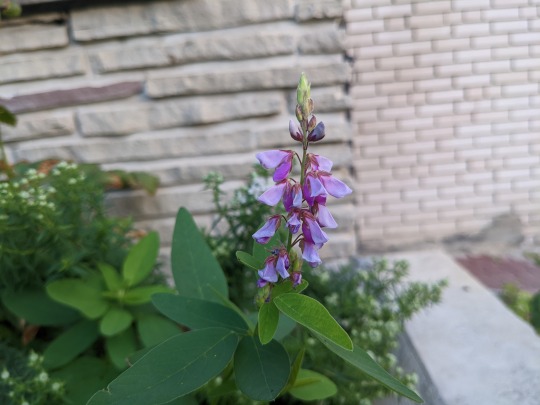
Desmodium canadense (showy tick trefoil)
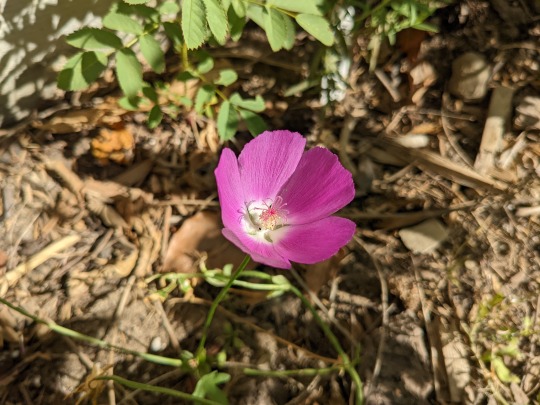
Callirhoe involucrata (purple poppymallow)

Pycnanthemum virginianum (Virginia mountain mint)
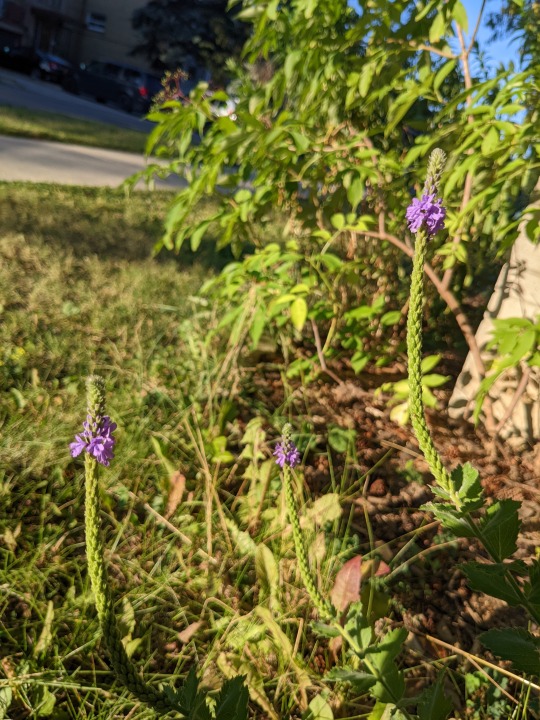
Verbena stricta (hoary vervain)

Eupatorium purpureum (sweet joe-pye-weed)

Monarda punctata (spotted beebalm)
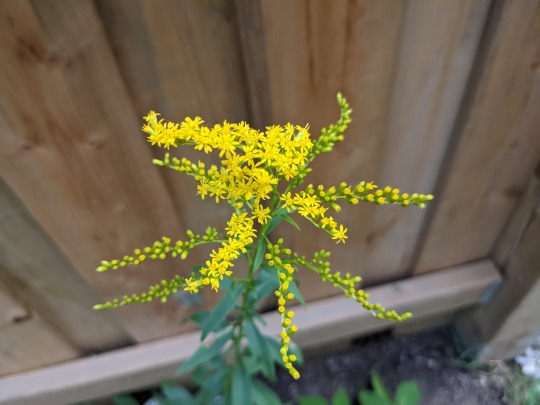
Solidago juncea (early goldenrod)
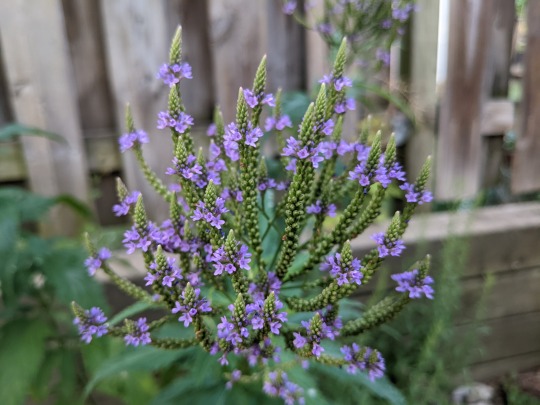
Verbena hastata (blue vervain)
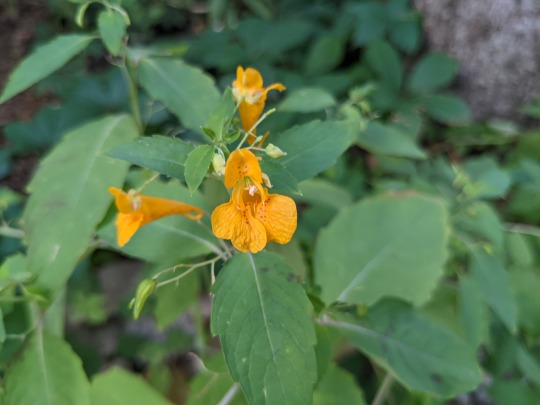
Impatiens capensis (spotted jewelweed)

Helianthus nuttallii (common tall sunflower)

Symphyotrichum ciliatum (fringed blue aster)
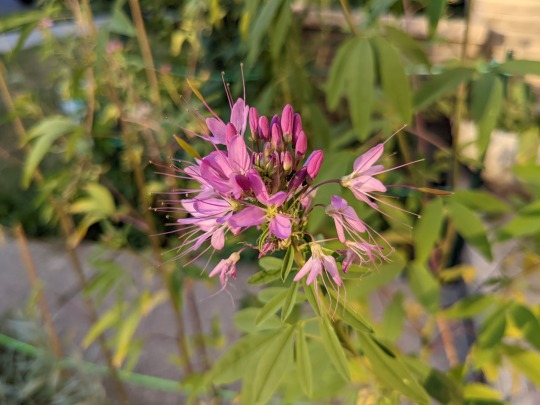
Cleome serrulata (Rocky Mountains bee plant)
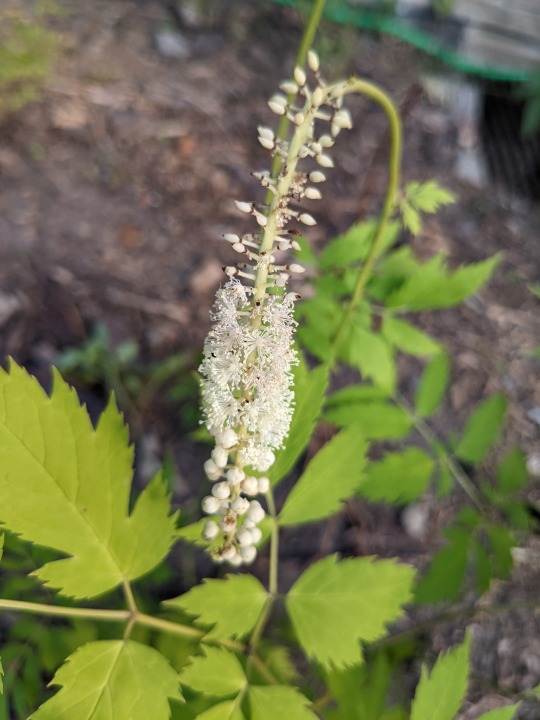
Actaea racemosa (black snakeroot)
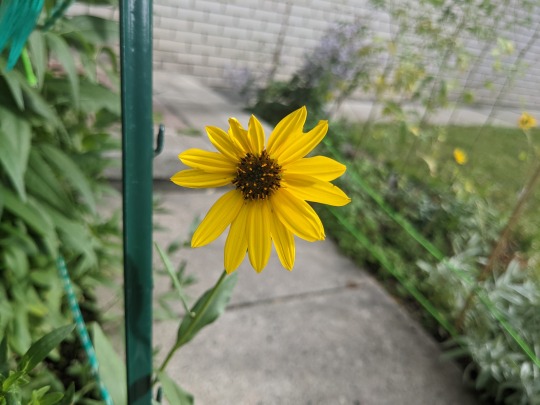
Helianthus pauciflorus (stiff sunflower)
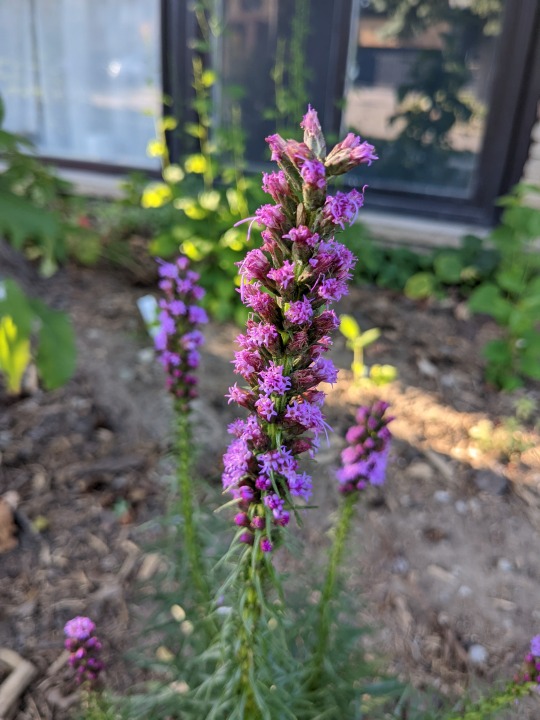
Liatris spicata (dense blazing star)

Hypericum punctatum (spotted St. John's wort)
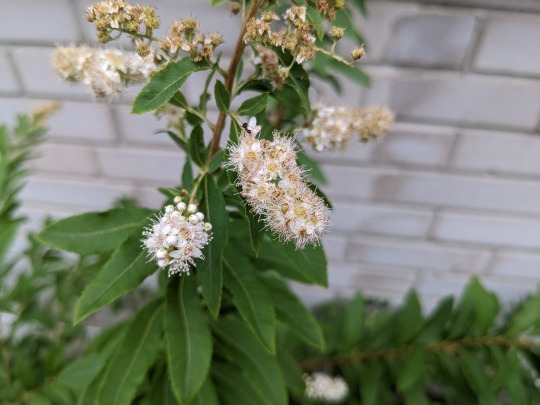
Spiraea alba (meadowsweet)
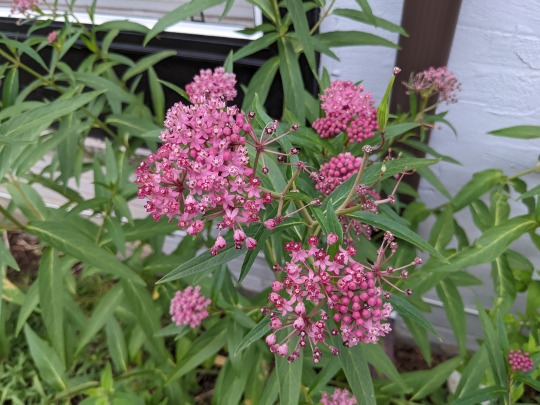
Asclepias incarnata (swamp milkweed)

Agastache foeniculum (anise hyssop)
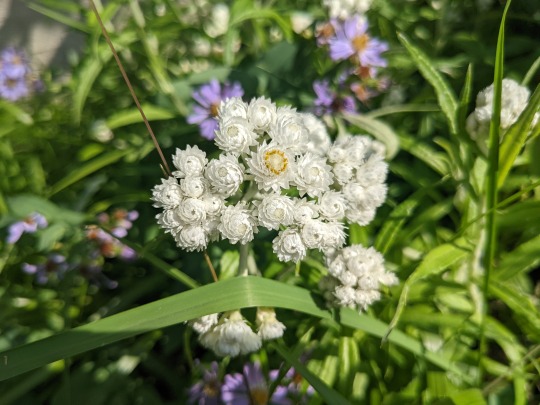
Anaphalis margaritacea (pearly everlasting)

Symphyotrichum laeve (smooth aster)
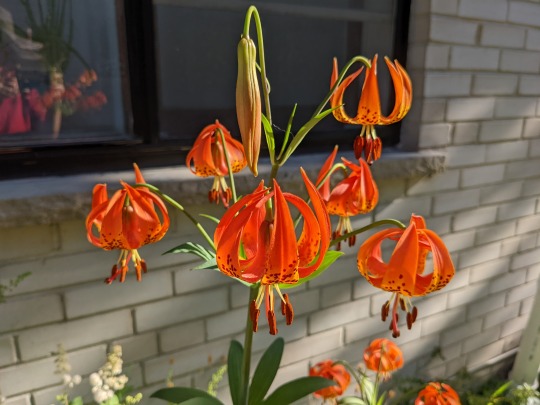
Lilium michiganense (Michigan lily)
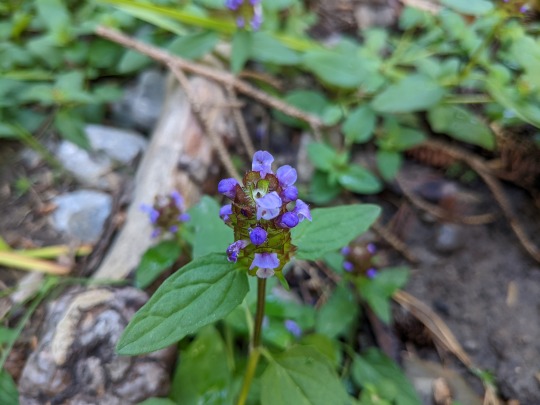
Prunella vulgaris ssp. vulgaris (common selfheal)

Symphyotrichum lanceolate (panicled aster)

Astragalus canadensis (Canada milk vetch)
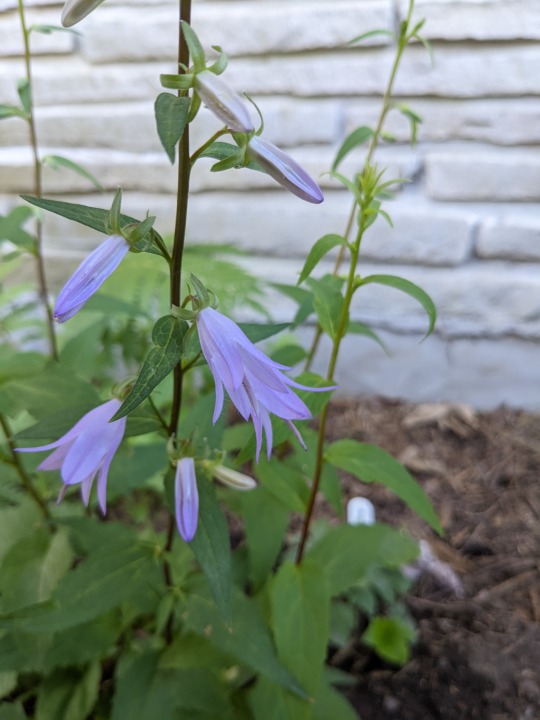
Campanulastrum americanum (marsh harebell)

Sambucus canadensis (common elderberry)

Mertensia paniculata (tall bluebells)
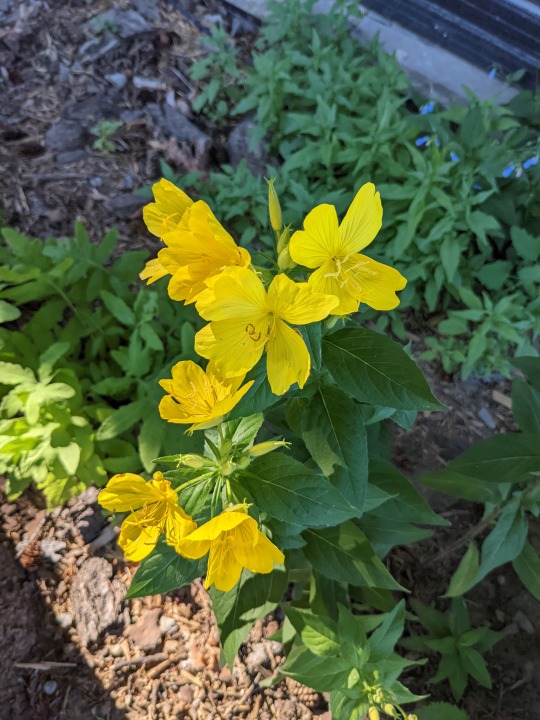
Oenothera fruticosa (narrow-leaved sundrops)

Lilium philadelphicum (wood lily)
And cut off again. lol
17 notes
·
View notes
Text

Title: Picnics and Flowers Pairing: m!Eivor x fem!Reader Rating: T Summary: With the help of your little sister and her band of rogues, Eivor and you finally have to face the feelings you’ve kept from one another. Plot idea by @angstygunslinger. just took me six months to write it.
A FRUSTRATED SIGH escapes your lips as your little sister dashes off with the piece of parchment you were using for a letter —now half-written. Rising from one of the tables in the longhouse, you start after her. “Helga!” You shout, catching her disappearing toward the granary. “Come back here!” You round the corner of the longhouse in haste, colliding with a wall of warm muscle, the both of you falling at the sudden impact. A warm and familiar laugh fills your ears from beneath you. “Eivor!” You gasp, eyes wide in shock —he was not due back to Ravensthorpe for some time. He smiles at the flush of color creeping up to your cheeks. “Sorry, I was–”
“Chasing after Helga,” he finishes, laughing again, “as always.” Much had changed since leaving Norway, but Helga’s antics for mischief had not —you swear she must be one of Loki’s spawns with how often you have to chase after her and keep her from getting into serious trouble. You roll off Eivor, and he’s quick to rise, offering his hand —calloused from battle— to help you up.
Eivor smiles as he brushes the dirt from your shoulders and the smudge on your cheek. “It is good to see you,” he notes, the amusement gone from his voice. Of all the people in Ravensthorpe, he always finds himself missing you the most. Your gaze flicks away from Eivor, unable to meet his clear blue eyes and the soft smile hiding behind his golden beard without making a fool of yourself. “But weren’t you chasing after your sister?” Eyes widening, you dart off after Helga again. Eivor shakes his head, laughing to himself as he conducts his rounds.
EIVOR CALLS FOR a feast to celebrate the Raven Clan’s new allies in the north and his return to the Ravensthorpe. For now, he has no intention of leaving —at least not until the time comes to secure another alliance with the lords of England or Sigurd summons him away. It is a good feeling, knowing you will see Eivor more often —like the days before you fled Norway. You watch as he makes rounds, speaking to Gunnar and Wallace, among others who call this growing settlement home. He may not wear the title of Jarl, but Eivor is a good leader with the love and respect of his people.
Helga stumbles to where you sit, hiccupping with every other step and trying her best to hide the cup of mead behind her back. Part of you wants to laugh; you’d gotten into similar trouble as a young girl —Eivor and Sigurd your accomplices— but Helga is all you have in this world, and despite calling you sister, you’re the only mother she’s really known, too. “You are too young to be sipping on Tekla’s mead,” you tell her, giving her a cup of watered ale instead. She opens her mouth to protest, but you shake your head. “I won’t hear anymore on it, Helga.”
Pouting, she clambers onto the bench next to you, reaching for the last remaining piece of a berry tart at the table. If she can’t have any more mead and fun, then she’ll eat enough sweets to make you stay up all night to hear her complaints. Helga follows your gaze as she bites into the sweet raspberry tart Tarben made. You’re watching Eivor as he speaks to Mayda and Bertham —young lovers in a predicament with disapproving parents. Helga can’t say she’s surprised to find you staring at him. You seem to do that a lot. With the glances you and Eivor have exchanged all evening from across the longhouse, and after snatching a half-written poem from your desk a few days ago, she decides it’s time for her greatest plan yet. “Do you like Eivor?” She asks —words slurring together.
“Of course,” you answer, unsure why she would even ask a question like that. Helga knows how close you and Eivor are and how he oft comes in the late hours of the night seeking counsel, especially if he and Sigurd were at odds over something. “He’s one of my dearest friends.” Nigh every story worth telling from your childhood features Eivor.
Your little sister rolls her eyes with an exaggerated sigh. “No” —she shakes her head, whole body squirming on the bench— “not like that. Like how,” she pauses, trying to find the right way to describe it, “Gudmund and Gudrun like each other?”
Skimming the hall, you find the two shipwrights —having sent Eira to bed, Gudrun sits on Gudmund’s knee, sharing laughs and exchanging quick kisses. You ignore the way your stomach and heart seize at the thought of having something like that with Eivor and decide not to respond to Helga’s drunken question, but she thinks silence is just as good as a yes or no. You narrow your eyes, seeing her struggling to keep hers open after drinking all that mead and stuffing her belly with meat, bread, and sweets. “Isn’t it past your bedtime?” The question perks Helga up. Across the table, Hytham hides his laughter behind a cup of ale.
“We are celebrating,” Eivor notes, throwing an arm around your shoulder as he sits next to you with a tankard of mead in hand —he winks at Helga.
IN THE WEEK following the feast, Helga tells the other children in Ravensthorpe to meet her behind the stables. Sylvi, Knud, and Eira all appear after their morning chores are done, looking to Helga for what their next adventure entails. Last time, they put a cowpie in Osbert’s slipper and spent the rest of the day hiding and running from the collector as he chased them about the settlement with his hammer and chisel, threatening to carve off their noses while they slept. The empty threats made for an amusing afternoon.
But this time, Helga’s plan is not nearly as nefarious. No, she likes to think she’ll be doing you a favor since you seem oblivious to the obvious. “He’s always staring at her,” Sylvi says, peeking over the stable fence to see Eivor watching you pick raspberries to help Valka with her elixirs and salves. “You know, they both smile more around each other too,” Eira whispers. All of Ravensthorpe seemed brighter when you and Eivor reunite.
“I have a plan,” Helga announces to her cohort of merry troublemakers, motioning the three of them closer.
HELGA FINDS EIVOR fishing off the docks, a woven basket next to his feet almost filled with eels and trout —a successful morning, which means he’ll be done by the time you finish with the stew and her plan can come to fruition. “Eivor!” Helga shouts, skipping onto the wharf and stopping next to him, peering down into the murky water of the river Nene. “Will you come to our picnic?”
He regards Helga and the sweet smile on her round face —she’s up to something. “I think I can make time,” Eivor tells her, what few duties he had could wait until the evening hours. Besides, whatever your sister is plotting will undoubtedly be far more entertaining than writing correspondences to the Raven Clan’s allies.
“Can we pick flowers first?” Helga asks —she made sure to find a patch of wildflowers nearby where your favorite wildflowers in England grew. With you tending to a pot of stew in your shared cabin, she knew this plan would work out just dandy. Eivor agrees, pulling in the last of his catch for the day —a good size bullhead. Taking the basket of fish and eels to Merton, Eivor follows Helga as she leads him to the eastern part of the settlement, where there’s a dense patch of wildflowers growing atop a small knoll, knowing she’s up to something but saying nothing of it. He’s always found Helga’s antics to be amusing, but not quite as amusing as your exasperation after catching her getting into mischief.
“Those are–” Helga starts, looking at the handful of purple vetch and cornflowers “–your sister’s favorite,” Eivor finishes with a smile. He kneels, offering one of the flowers to Helga, tucking the stalk of vetch behind her ear. “Can you keep a secret?” Eivor asks, already knowing she couldn’t —the quickest way for Ravensthorpe, and even Fornburg, to learn of something was to tell Helga and tell her it was a secret too. Leaning closer, he whispers at her ear, smiling as her eyes and smile widen. Eivor rises, looking down at your sister with a glint of mischief in his eyes too. “Where should I meet you and your friends, Helga?” He asks.“
“Under the tree near the waterfall by Valka’s,” she answers, scurrying back to find her friends and tell them the good news.
SIGHING, YOU SIT down a small pot of stew under the tree where Helga said to come —only your sister and her friends are nowhere in sight. You pinch the bridge of your nose, not believing you’d fallen victim to another one of her ploys. You’d been up since the crack of dawn to make a pot of pork and leek stew to pair with a loaf of Tarben’s brown bread and apple preserves. Hands on your hips, you glance around, searching for Helga and her friends up in the tree, or hiding in the bushes, but it’s just you, birdsong, and the soothing calm of the waterfall.
The low croak of a raven perching on a branch above startles you —Sýnin. The raven looks down at you, croaking again, but this time it sounds as though he’s laughing at your folly. You scowl at Sýnin, jumping when you feel someone tap on your shoulder. Turning, you find Eivor standing behind you, holding a bouquet of wildflowers with an oddly bashful look about him as he rubs the scar on his neck. “Eivor?” You ask, heart racing and stomach-churning with butterflies —you hadn’t expected to see him so early in the day, especially in your current state. Eivor doesn’t care if your hair isn’t plaited or the apron you wear has a few stains. To him, you’re just as beautiful now as you are dolled up for feasts.
Remembering the flowers, he pushes them forward. Smiling, you take the bouquet. Vetches and cornflowers are among your favorite, but Eivor already knows that. You inhale the peppery sweet scent of both flowers —smile widening and mood improving after being caught up in another of Helga’s games. “Be a pity to let this go to waste,” Eivor remarks, gesturing to the pot of stew.
In agreement with that, you and Eivor sit beneath the great tree. You ladle out two bowls of stew while Eivor slices into the loaf of brown bread. “I think we’ve both been deceived,” you mutter, still glancing around the pool and bushes —expecting to see Helga hiding somewhere.
Eivor laughs, knowing it to be the truth. Helga had orchestrated the perfect moment —the perfect opportunity— for him to confront and confess the feelings he’d kept locked away for years now. Eivor decided quite some time ago he’d prefer to love you in secret to protect the precious friendship you shared, then speak of his heart’s desires and risk everything. He sets aside his bowl, shifting. “I don’t mind if it means time with you,” he smiles, reaching for one of your hands. It’s instinct to curl your fingers around his —thumb running over his scarred knuckles. Eivor whispers your name, leaning toward you.
He kisses you —without warning or permission— lips brushing against yours, only just. A chance for you to pull back, but you don’t. Smiling, you press your lips against his, chasing away any doubt he could have harbored of if his sentiments are returned. You lift a hand to his scarred cheek, loosely combing through his golden beard. There’s a pause, where you both draw back, just barely, letting out shaky breaths. Eivor slips his hand from yours, cradling the back of your head as he takes another kiss, this one firmer —confident— taking the breath from your lungs yet calming the racing of your heart. “Eivor,” you breathe upon parting, still cupping his cheek. His smile is wide, and his eyes clearer than you have ever seen before. He leans back in, kissing the corner of your lips and then your cheek, knowing these kisses are just the first of many more.
Glancing over his shoulder, Eivor sees Helga and her accomplices peeking out from behind Valka’s hut. “You can all come out now,” he calls, laughing. Your sister and her friends come forward, unable to hide their victorious grins. You wish to scold Helga for the deception, but you cannot find it within yourself to be upset with her, especially not when Eivor takes your hand, kissing your knuckles before he begins ladling out stew into the remaining bowls for the children with a smile. No, this time, you may even have to thank her for her antics, for she had just brought you together with the man you love.
[taglist: @angstygunslinger @vanillabeanlattes @withered-poppies @ananriel @itseivwhore @maximalblaze @dynamicorbit @theelvenvalkyrie @xxdearlybeloved @elizabethroestone @elluvians @letsloveimagines @finick94 @wallsarecrumbling @kitkitvm @thedragonqueenfan @callmemythicalminx @edelaen ] if you’d like to be added to my Eivor taglist, just let me know!
#Eivor#Eivor Wolfsmal#Eivor x Reader#m!Eivor#m!Eivor x Reader#male Eivor#male Eivor x Reader#Eivor Imagine#Eivor Fanfiction#Assassin's Creed Valhalla#Assassin's Creed#my writing
117 notes
·
View notes
Text
ffxivwrite 2021 - #9: Friable
Gridania, 1565 6AE
The promise of the warm breeze billowing the back of her conjurer’s robe against her legs bore Shandrelle all too eagerly past the gates of Gridania and down the narrow path leading toward the creek- but so it did daily this season when she found a brief sojourn for lunch.
All the better, for it was just as quiet out here as yesterday- as soon as she slipped away from the main road the sounds of people were left behind, leaving only the vociferous arguments of birds. The basket dangling from her elbow tapped now and again against her side, the leaves of spring already thick enough to break the sunlight into a kaleidoscope of green that dappled the undergrowth like motes of glass. Beneath her breath she hummed a faint song to the tune of the rush of foliage as the wind tossed it to and fro, catching the few strands of hair that escaped her neat bun to scatter them against the side of her neck.
The path dipped her down the crest of a rolling hill that plunged the city out of sight, and the wilding foliage that grew taller and taller at her shoulders gave way to the resplendent purple trumpets of vetch. She couldn’t help but trail her fingers towards the blossoms, catching upon the narrow leaves of a particularly precocious example, and in the back of her head spidered half-unconscious designs to fit it into a verdant bouquet. She could tuck it into the basket for safekeeping, only to sneak it into a great vase at home at a convenient place to draw Ezette’s attention. Or perhaps Astrane would take to it, for while the girl hadn’t yet the botanist’s eye the sight of a new spot of color in the house lit her face up with a grin to match the finery before her.
The memory was enough to suffuse a great warmth through Shandrelle’s chest, and before it could reach her toes it was decided. Setting the basket at her feet she reached out to pinch off the stalk beneath the long curve of her nail.
But just as her fingers fixed around its smooth vibrancy, a sudden force seized around her middle. With a squawk Shandrelle lashed out, struggling a hand towards the wand at her side but arms wrenched her shoulders, binding around her arms as sure as steel.
A breathy cry stuttered free, and Shandrelle twisted hard in her assailant’s grasp- but a searing pain burned through her shoulder as hands shoved at the back of her head, jabbing her chin down into her chest. Eyes watering, she locked her gaze off to the side, but just as she began to call the earth to rise up to her aid, buckling the earth just behind her, the grip shifted and the cool bite of a blade lay against her throat.
Shandrelle froze, her heart pounding in her chest. But it was the voice that crystallized her blood.
“Shandrelle,” it growled, and something about its resonant alto was familiar, so familiar in a way that shot every hair on the back of her arms upright, but oh- by the Twelve- the malice it promised wasn’t.
“W-who are you?” she stammered. “What do you want?”
At once the lock released her, only to whip her around with violent force as the blade whipped back to her throat. Her bones ground against each other as the grip tightened so hard she thought her shoulder might come apart, but as she gasped through the pain, vision swimming, she locked her eyes upon the face of her assailant- and the pit of her stomach bottomed out.
“Ojene?” she gasped.
It couldn’t be- and yet it was. Thirteen years weren’t enough to blot the face she remembered away, the angular jaw beneath the long nose cast with a light spattering of freckles that peered out against the dark grey skin. And yet she’d never seen the jet-black hair cropped this short before, barely bristling above the scalp. Nor this cold wrath the face held, casting the brilliantly blue eyes she’d once thought of so fondly into twin drills of ice that speared her to the spot.
“You look shocked,” Ojene said coldly. “Surprised it didn’t work? That I’m not dead?”
“What are you-” But even as the pain in her shoulder spilled a fiery tear down her cheek, the calamity of memory stuttered through her like a whirlwind of glass. The hand on her shoulder impossibly tightened further, and a pained cry burbled from her throat. “No!” Guilt roared in, staining heat up her throat. “I’m sorry- I didn’t know! Or- I should have believed you! Let me go!”
She didn’t expect it to work, for as recollection caught her in its screaming tempest it flung too many things she knew as true before her feet. That Ojene was never one to back down. Always flinging herself into a fight. The way she screamed fury at her betrayers and yet- something in those glacial eyes shifted. Flattened, even, as if something of the cold fury they held attenuated. Or at least, slipped below the surface.
The hand on her shoulder didn’t release, but it slackened to something more reasonable- a new wave of pain crashed in its wake, but Shandrelle half-swallowed a gasp of relief.
“Explain,” Ojene said.
The heat of guilt rolled up her cheeks- or was it shame? “My father,” she uttered. “You told me- all those years ago what he’d done- and I didn’t believe you! I’m sorry- I should have listened to you. Done anything, other than what I did.” The words babbled forth like a creek bursting its banks, but even as she heard herself she couldn’t stop, the warmth climbing hotter and hotter in her face. “And you left- and I can’t blame you- I would have done the same, I’m sure, if it was me, for how could you trust a thing I said, er-”
Ojene blinked. A faint furrow pressed between her brows. And the ice cracked, rippling with the slightest flicker of confusion.
“What?” Ojene said.
“The act you told me about,” Shandrelle bullied on- she could scarcely feel her face. “How he tried to kill you. And I didn’t listen- but you were right.”
Again Ojene’s expression changed, as subtle as the shift of a snake’s muscles beneath its scales, collecting into an austere frown. The edge of the blade withdrew, but its tip didn’t, laid delicately against the curve of Shandrelle’s throat.
“What do you know?” she asked.
#ffxivwrite2021#ffxiv#my writing#ojene suinuet#shandrelle roiveaux#today in: scenes I've loosely imagined for years but never put down
8 notes
·
View notes
Text
Just the Place
Have a piece of Alistair x Cousland fluff! This is pre-relationship, set between chapters 26 and 27 of my longfic, The Falcon and the Rose, so minor spoilers I guess? It’s not much to worry about. Just a day out escaping the pressures of nobility and skipping stones
--
Alistair should have known better than to think a night’s rest against even the fluffiest of pillows would inure him to the uneasy feeling that had settled in his stomach the day before when he had first caught sight of Redcliffe’s keep through the trees. It was a place too familiar, too full of memories, of people who had known him before his title and even before he had made a name for himself under Teagan’s instruction, and before the sun had even poked above the hills he was driven from panicky dreams where Isolde laughed with the golden eyes of a witch. The connection his slumbering mind made to Flemeth unnerved him, enough that his valet remarked on his taciturn expression as he was handed his clothes to dress for the day.
Too queasy for breakfast, and unwilling to see the wariness and resentment in the faces of the servants who had once considered him little better than dirt, he took the guard route along the wall and down into the courtyard, thinking to head towards the stables. Master Dennet, Eamon’s horsemaster, met him with a nod of recognition but nothing more. Of all the people Alistair had known in his old life, Dennet alone had never bothered with propriety, or speculated about just whose bastard he was.
“Got no room for gawkers, Your Highness. Their Graces don’t much like being kept waiting for their breakfasts.”
“I’ll give you some help, if you like,” he offered, and got only a shrug in return. Still, it felt good to do honest labour, to use his hands for something other than swordwork or practicing his letters, and the friendly bumps the horses gave him as he doled out their morning feed made him smile.
Once they were all munching away, however, their contentment infectious and the quiet of their presence soothing, it only made him more reluctant to squeeze himself in between Cailan’s forced cheeriness, Isolde’s piqued formality, and Baudrillard’s determination to be a sycophant. Perhaps he should go to the village. It was unlikely he would receive much of a reception there, but as he stepped out from the gallery and through the gate in the curtain wall, the pre-dawn chill had already started to dissipate, the sky clear blue and cloudless. Birds would be singing among the trees, while the breeze that blew in off Lake Calenhad during every summer would keep the heat from growing truly unbearable. Sneaking a few hours of freedom couldn’t hurt, surely.
A thunderous bark stopped him in his tracks as he was walking under the shadow of the barbican. He turned just in time to stop himself go flying as a large brindle mass collided with his legs, with a rich echo of laughter following on behind. Cuno chuffed and turned to sit on Alistair’s foot so he would have better access for a scratch to the shoulder, his wide doggy grin and lolling tongue betraying his delight in the attention.
“Aw, who’s a good boy?” Alistair asked him. “Have you been for a walk?”
“We were just about to go on one.”
He looked up to find Rosslyn smiling fondness at her dog, with all traces of the previous days’ journeying scrubbed from her features and her usual attire traded out in favour of longer, more formal split skirts. Her gaze, when she raised it to meet his eye, skittered away in a blush and a self-conscious move to tuck a stray wisp of hair behind her ear.
He swallowed. “Good morning.”
“And to you, Your Highness,” she replied, with the note of mirth she reserved these days for the times they could not forebear an audience.
Alistair’s mind stumbled on how to keep the conversation going. He wanted to, but he had been careful to avoid thinking about her at all since waking, since their parting the night before and the hours afterward while the memories lingered, denying him rest. The skin of her hand had been so soft under his fingertips, and he had focused entirely too much on the hushed part of her lips as he had pressed a kiss across her knuckles. He had wondered, in the darkness, what she had been thinking in the moment, whether she would chastise him on their next meeting once the shock of his forwardness had worn off. Now she stood before him, still smiling – not trying to run him through – he decided to take it as encouragement, or at least approval.
The guard on the gate coughed, and he blinked.
“I didn’t expect to see you so early, Your Ladyship,” he said, trying to ignore the sudden flare in his cheeks. “I hope you slept well?”
She nodded. “Arlessa Isolde is very generous in her duties as a hostess – I’ve wanted for nothing.” The wry smile faded. “I went looking for you, actually – to tell you the army won’t be arriving until this afternoon.”
“Oh, I’m sorry you missed me.” Of its own accord, his hand reached up to run through his hair, his mind preoccupied with deciding if it would be a step too far to admit the real reason he had gone to the stables and all but lurked there until it became weird. Helpless, he gestured to the broad stretch of the road beyond the gates. “Just thought I’d stretch my legs, you know how it is.”
“You’re going without an escort?” she teased.
“Only to the village! And it’s not like I’m unarmed.” He tapped the sword hilted at his side, and smirked. “If you’re so worried, why don’t you come with me? You’re practically an army unto yourself, after all. I could… show you the village? If you’re not already busy, of course.”
She smirked. “A chance to see all your old haunts? Cuno would enjoy the exercise, I suppose.”
The dog gave an excited bark.
“That decides it – shall we?”
They stayed comfortably close but did not touch as they followed the road that wound from the top of the hill down to the village nestled at its base, passing idle conversation back and forth as Cuno trotted ahead with his nose to the ground and then came galloping back to chide them for being so slow to catch up. The day rose with birdsong and dappled sunlight, and Alistair had to keep forcing his eyes back to the road ahead. Rosslyn clearly noticed; she kept peering at him strangely whenever he caught his eyes lingering too long, but didn’t comment, and he was grateful. Though the bite in them could last against such a bright day, Flemeth’s warning still preyed on his mind, worse for the truth he saw in it.
When they rounded the last bend and the first buildings of Redcliffe came into view, the windmill on the stream’s edge and the pub leaning its gables over the road, they stopped for a moment to take in the view.
“Did you miss it?” Rosslyn’s voice was quiet.
“Would it make me a bad person if I said I didn’t?” he shrugged. “I guess I must have been happy sometimes, but I don’t remember much. The revered mother was always kind to me. And Arl Eamon did look after me.”
He noticed the way her lips thinned at that, true thoughts held back for politeness’ sake. To cover, he cleared his throat and looked out over the tiny collection of buildings that had once been the farthest reaches of the world.
“What do you want to see?” he asked. “There’s the chantry, the smithy, the docks – it’s not market day so there won’t be much to see in the square, but maybe –”
“Where do you want to go?” She had linked her arm through his, bringing her face close enough, tilted up at him, that if he were to just lean forward…
“Um.” He turned away. Through the fog in his mind, he tried to work on the problem, to think of something that might hold her interest somewhere where they wouldn’t be fodder for the gossipmongers. “I know just the place.”
With a grin, he slid his hand into hers and stepped off the path to lead her down away from the village. Curiosity lit in her grey eyes as he glanced back to make sure she was alright, the dog at her heels brushing past to scout out the trail ahead. Over the years the vegetation had crowded in and frost-cracked boulders had broken from the cliff above, leaving only narrow deer tracks winding through the trees. He couldn’t really get lost, but more than once they had to double back when the questing branches of saplings condensed into thickets rife with brambles.
“Where exactly are you taking me?” Rosslyn laughed when the ground finally levelled out beneath them. The path was wider here, more distinct, and he recognised the craggy face of the rock ahead, cut into the likeness of a horse’s head by the accidental work of time and weather.
He turned back and grinned. “Not much further.”
The last step was a steep climb down a narrow gully carpeted with old leaves, and a two-foot drop down a bank dotted with blue vetch and embrium. Cuno had already raced ahead and found the water, and was splashing through the curling edge of the small waves that washed over the shore.
“Well, what do you think?” Alistair asked as they made the final jump. “Do you like it?”
“It’s… Alistair, it’s beautiful.”
He beamed. The narrow strip of pebbled beach bled into sand towards the water’s edge, overhung with lush greenery that filtered the sunlight and offered hiding spots for the birds flitting along on their own business. Instead of the stink of fishguts that pervaded the village docks in high summer, here the scents of clean water and wildflowers filled the nose. A breeze stirred against his face and when he looked he found Rosslyn had turned her face into it and closed her eyes, a smile playing about her mouth. Their hands were still joined.
He ought to say something. Explain.
“I went exploring a lot. Being raised by dogs, you get a lot of slobbery love, but they’re not big on the child supervision. And sometimes the castle could get…” He had wanted to get away from thoughts of the castle, so he reached down and plucked a round, flat rock from the ground at his feet. “I used to spend hours skipping stones.”
“What’s your record?” she asked.
“Twelve.”
“Impressive.”
He tried to pout. “You can do better, can you?”
“Alistair, I grew up by the sea.” There was the flash of a smile as she let go of his hand and stooped to find a rock of her own. “I can certainly try.”
“Care to wager, dear lady?” he teased, to cover his disappointment.
With a lift of her chin, she closed the space, spinning the stone between her fingers as she weighed the challenge, but even though he tried to meet her gaze, he faltered when her tongue poked out to wet her lips.
“A drink in the tavern?” she suggested.
He managed to nod. “That sounds reasonable.”
Satisfied, she wheeled to face the water and took up a stance just shy of the waterline, wrist poised with the edge of the stone pressed against the tip of her first finger, but as she drew her arm back Cuno trotted over and butted his nose in polite enquiry against her hand, in case the stone was really just a treat for him.
“You know, it’s cheating if you wait so long I don’t even get a turn,” Alistair pointed out.
“So is distracting your opponent.”
“Are you being distracted by little old me?”
She merely rolled her eyes. A moment later, the dog went charging into the water after her cast stone, a great plume of white spray rising around him until he stood chest deep in confusion, trying to work out where his prize had gone. It made nine skips before being caught in the lap of a wave and sinking to the bottom.
“I do believe your technique is looking a little rusty, Lady Cousland.”
“Is my technique what you were looking at?” she asked lightly.
Alistair’s ears burned, but he ignored the flutter in his stomach as he stepped up next to her. “Among other things.”
He watched her reaction only long enough to make sure he hadn’t taken the comment too far, then let his stone loose with a flick of his wrist. Ten skips. When he glanced back, she was fighting to contain a grin.
“Well we can’t just go by a single result,” she said, as if it were unthinkable.
He laughed. “Perish the thought.”
Still smiling together, they turned aside to search for more stones. Most weren’t suitable, either too large or too thick or not circular enough, and so after a while the game became less about skipping than remarking on ones with interesting shapes or patterns, and throwing them for Cuno to hunt through the water.
“Alright, last one,” Rosslyn decided, lining up one final shot as the climbing sun loomed down almost directly overhead.
Alistair stepped close, one hand going to steady her lower back. “Go for it.”
She cast, and got fourteen.
“It looks like you win.”
“I don’t think I want to leave just yet,” she admitted, without moving away. “It’s nice here. The view is wonderfully free of Orlesians.”
“I always thought so – it does add to the charm.” He glanced further up the beach. “We could sit?”
Nodding, she followed him a little way to a bleached log that must have been deposited during a winter storm at some point after he had gone to Rainesfere, and together they made themselves comfortable against it. In the silence, the world surrounded them, the sound and smell of water and the slight dig of hard-edged stones against the backside.
“Is everything alright?” Alistair asked after a while.
“Hm?” Rosslyn blinked away from her contemplation of the horizon and sighed. “I was just thinking. This place reminds me of home a little. It’s not quite the same, but it feels familiar.” With a pink stain blossoming in her face, she ducked her head away. “Thank you for bringing me here.”
Her hand lay between them on the shingle.
“You don’t need to thank me,” he told her. “I… you should get to be happy.”
The softness in her gaze nearly undid him, but then she dropped it to where his fingers had found courage to curl around hers, and his breath stilled in his chest as she pulled his hand into her lap, as her thumb stroked over his knuckles. She opened her mouth and drew in a breath. He waited, only for her to sigh again and shake her head in a self-defeated huff of laughter, and settle her cheek against his shoulder.
#dragon age#dragon age:origins#alistair x cousland#alistair theirin#cousland#f!cousland#alistair x warden#my writing#the falcon and the rose
45 notes
·
View notes
Text
owo november is over babesssss back 2 your regularly scheduled full-size lizard content
Made A Garden (Chapter 3)
[ch 1] [ch 2] [ao3]
Fandom: The Penumbra Podcast
Relationship: Lord Arum/Rilla
Characters: Rilla, Lord Arum, Rilla’s Parents, The Keep
Additional Tags: Second Citadel, Alternate Universe - Childhood Friends, (categorized as ‘other’ bc arum is nonbinary when i write him bye), Lizard Kissin’ Tuesday, POV Alternating, canon typical Arum ignoring feelings, edited to feature my Rilla's Two Dads theory
Fic Summary: Rilla’s parents take her out when they do field work. She’s a smart kid, and she knows how not to get in trouble when they’re caught up with their experiments and research. This time, they’ve taken her to an enormous, beautiful swamp, and their theory is that the monstrous presence in this place should be entirely dormant- which is why Rilla is so surprised, when she meets a monster for herself.
Chapter Summary: Lord Arum tries to prove a point. Rilla gets excited!
Notes: no, i absolutely did not mean to take this long between chapters. i promise that i NEVER do. i'm just an easily distractible mess, is the thing. welcome to december here are the summery vibes again!!! loveyou
~
The Keep murmurs a question, a song that whispers in Arum's mind, awash with affection and concern. Are you not going to walk your swamp today, little Lord?
Arum scowls, pacing in a narrow figure eight as he reads through one of his predecessors’ journals. Again. “I do not need to do the same thing every day, Keep,” he grumbles. “And don't call me that.”
It hums an assent, clearly unconvinced. It pauses for a long moment, allowing him to continue his reading, but he isn't surprised when it chimes again, a light offer of assistance, a nudge towards what the Keep may do, to protect the both of them, if Arum wishes to have his swamp to himself again-
“Don’t-”
The book tumbles from his hands, thwumping to the floor as Arum winces.
It sings another nudge, pushing further in that direction, encouraging and warm.
“I simply do not feel like gallivanting around today!” he snarls. “It has nothing to do with her.”
There is another pause, and then the Keep trills in a vague, bemused sort of way.
Arum snatches the book back up from the floor with his tail, then clutches it to his chest. “I am not afraid of the humans,” he deflects, sticking his snout in the air. “They are utterly nonthreatening. They aren’t warriors or knights- they are some sort of- explorers,” he says derisively. “Scholars or researchers or some such. No threat, none at all.”
The Keep hums, even softer, how that will make it all the easier, to chase them out-
“No!” Arum stuffs the book back onto the shelves, his tail lashing behind him and his frill high. “It- it isn’t worth your effort, Keep. If they come close enough to be troublesome we can- can push them back away, but as it stands they hardly bear mentioning. It is highly obnoxious that we have spent even this much time discussing them.”
The Keep hums, clearly unconvinced, but Arum turns his snout up. He has ended the conversation. The conversation is over, and the humans need not be mentioned again. Obviously.
However. Arum has now put away his book, and he does not, in fact, know what he wishes to do next. He intended to spend his morning decoding and researching, but now- well, thanks to his meddling plant, he is far too agitated for that sort of focus-driven task, and he refuses to waste time trying to plug away at old Vetch ’s journals when his mind is not at its keenest. It would be pointless.
The Keep warbles again, and Arum bristles at the teasing edge in its tone.
“Fine,” Arum snaps after a moment, his frill fluttering at his neck. “Fine. If you should like me to prove my words, then I shall. You are in my mind, you ridiculous creature, but if that is not evidence enough for you, I will deign to assuage your pointless worries. I am not afraid of them,” he says, the hint of a snarl in his controlled tone. “I am not, and I will prove it. I shall go, and I shall walk my swamp, and no humans nor ridiculous ancient structures will deny me what I wish.”
The Keep hums one more question, its concern not quite assuaged.
“I know what I am doing!” Arum snarls, and he tries very hard not to wince when his voice creaks in the middle. “I will not be patronized! Am I Lord Arum, Keep, or am I some whelp for you to coddle and dismiss?”
It sings, patient, that he is Lord of the Swamp, and then after a moment it acquiesces, pulling a doorway open for him, out into his wilderness. It adds, gentle, that its duty is to protect Arum, just as Arum’s duty is to protect it in turn, and Arum stuffs down the little lance of guilt that stabs through him at that. He sticks his snout in the air, instead.
"And so I shall, if you simply allow me to do as I please."
The Keep pauses, and then it gives an indulgent hum as he steps out into the humid warmth of the afternoon.
Arum waits with his arms tangled across his chest until the Keep closes the way behind him, and then he-
He manages perhaps a half an hour inspecting his swamp before the curiosity worms through his scales. His tools and traps seem to be growing well, and those left by his predecessor are, he begrudgingly admits, even more promising. The fauna of the swamp seem perfectly content as well, with no management required from his part (excepting a particularly unlucky mongoose with a paw trapped between some tangled roots, but that hardly takes more than a moment to rectify).
He can't simply return home, though. Not this soon. That would hardly prove his point, would it? It would make the Keep insufferably smug, especially considering the wide berth he's given the humans and their little encampment.
Well. He can fix that part, at the very least, can't he?
It will play into the Keep's vines just as much to seek the humans out, he thinks irritably, but if he is going to lose regardless he may as well lose in the way he wishes to. He is not afraid of them, and if he wishes to make certain that they are not causing trouble, if he wishes to prove to the Keep that they are nonthreatening in no uncertain terms, then by the Universe itself he will.
They are embarrassingly easy to find. It is as if they have no desire to obscure their presence at all. Amaryllis mentioned, he supposes, that they had not been expecting to find much of an active monstrous presence here, but certainly since Amaryllis knows better now-
Has she not… told her parents? Or are they simply unworried over Arum himself, despite every reason they should have to be concerned? Clearly their hypotheses were wrong, so they should reassess their methods, should they not?
Her parents are doing something incomprehensible with glass vials full of swamp water. They perch carefully in a narrow canoe, each counterbalancing for the other as they gather their… samples, perhaps. Arum watches, suspicious, long enough to note that they are rather careful not to disturb the trees they are paddling between, that they avoid the floating flora. He watches long enough to observe as one of them accidentally ducks his hand too deeply into the water, his nose wrinkling as he pulls it back, and then he-
Grins, and his grin is the precise image of the one that Amaryllis wears, and then he flicks the water across the back of his companion, laughing as he squawks and smacks him in the leg.
They both laugh, then, and Arum is unsettled enough that he slips away.
Amaryllis herself it not difficult to find, after that. Still within earshot of the laughter as it subsides, unfortunately, but- the laughter does subside, and Amaryllis is smiling as she sketches away in that little journal of hers.
He watches her for quite some time as well, and he settles against the bark as he does, and he is comforted by the fact that he was, of course, correct.
These humans are entirely without teeth. He is certain that if he desired, he could frighten them away even without the Keep's help. He has no cause whatsoever to worry about them. No reason to fear, no reason to even keep an eye on them.
He remains in the tree for a good long while, however, watching Amaryllis summon with ink the detailed veins of leaves, the segmented bodies of insects, meticulously reconstructed pieces of his swamp.
~~~
Rilla yawns, suddenly, nearly startled by her own body's derailment and only barely managing not to ruin her latest sketch with an errant line. She grumbles to herself, shaking her head, and then she narrows her eyes at the page again, scrutinizing the roots she's drawn for this floating plant uncertainly. She's seen the roots when pulled out of the water, but that's not really representative of how they'd look underwater. She's tried to get a better look with her own head submerged, too, but- well, her eyes aren't really meant for that, and the water here isn't the most clear, either. She holds her breath for a moment, puffing out her cheeks, and then she huffs out the breath, tapping a finger on the page impatiently.
"They spread a bit wider than that," Arum says from above her, and Rilla startles. "And they curve slightly when there's a current, though I suppose most of the ones you've seen here would likely be in more calm waters than that."
Rilla tilts her head up, squinting against the sun until she spots the vivid violet of his eyes gazing back, narrowed and hesitant now that she's looking at him.
"…oh," she says, a little hesitant herself. "Uh-" she just barely stops herself from thanking him, considering how grumpy he got about it the last time. "Neat?"
"Hm," he grumbles, glancing off into the canopy rather than continue to look at her, and she bites her lip in consideration for a long moment.
"Would you- do you wanna show me what you mean?" she asks, lifting the book in her hands just slightly, and Arum's eyes dart to her again. "I think I know what you mean, but…"
He grumbles something, either wordless or just too quiet for her to understand, and then he slips further behind the leaves for a moment. She can still hear the scritch of his claws against the bark, though, which seems like a good sign. When he disappears, he seems to be able to do it without making any sound at all. She hears him growling low as he descends, and then his head peeks out from behind the trunk of a nearby tree, his eyes narrowed again in suspicion.
"Or…" Rilla angles her body a little, leaning sideways to see just a little bit more of the monster before he leans the opposite way in response. "I mean, you don't have to, if you don't-"
"Of course I don't have to," he snaps, "I don't have to do anything. I am ruler here. If I wish to ensure that your catalogue of my home is not full of incorrect information that is my business."
He steps out slightly, two clawed hands still curled around the trunk of the tree beside him, and Rilla realizes with a widening of the eyes that he has two other hands, as well, because the monster apparently has four arms, in addition to his long, twiggy legs and his dexterous tail. She hadn't been expecting that, hadn't realized that in between his first appearance mostly under the water and his second up among the branches, this is the first truly good look she's gotten of him so far. She knows that it's rude to stare, of course, but- but does that really count for scientifically significant and anomalous anatomies?
"Well?" Arum says, apparently wary of her scrutiny. "Do you want me to show you how it grows or don't you?"
"Which hand do you write with?" Rilla blurts, entirely unable to help herself, and Arum blinks.
"Whichever I wish to?" he answers, his scaly brow raising in confusion, and then he comes a little closer, watching her carefully as he reaches a hand out for Rilla to pass the journal to him. She doesn't hesitate, practically shoving it into his hands, extra plural implied. "Does it matter?"
"I mean-" Rilla watches him, noting the way he holds the book in his two lower hands, sketching with his upper left. "Yeah? Can you write with all of them equally well?"
"I'm a monster, not an idiot," he mutters, "of course I can write with all of them. It would hardly be convenient otherwise."
"But-" Rilla wants to bounce, instead she just steps a little closer, watching as Arum switches hands and continues to sketch with equal skill, his own style less detailed and more impressionistic than her own. "I mean, that's not how it is with humans, you know? Most people have a dominant arm that they can more easily perform tasks with, and usually they get so used to using the one arm for specific detailed tasks that the other one falls out of practice and isn't useful for the task anymore! There's a strange prevalence, too, a trend towards- the right hand side is more likely to be dominant than the left, and no one really seems to be sure why, just yet, though I bet we could figure it out if we just did a little bit more research. Though! There are people who can use both arms equally well, or- I mean, I guess some folks probably just train themselves to do so, and maybe it's not entirely an ingrained trait? I'm not sure about that one. Those people are called ambidextrous, which I guess would be okay to call you for a similar trait? Though, it means both sides, so I think a more accurate word would be omnidextrous, as in, all of your hands, though I don't know how many monsters have your limb configuration so it's hard to say how useful a word like that might-"
Arum narrows his eyes, his frill pressing tight against his neck as she talks, but she doesn’t recognize his annoyance for what it is until he interrupts her in a stammering hiss.
“S-slow- will you stop- will you stop yammering on so quickly that only your own shadow can follow? It is infuriating.”
Rilla snaps her mouth shut. She's convinced that her cheeks are flushing dark with the combined anger and embarrassment that smacks through her. This is even worse than when the shopkeep in market square told her to just shut her squawking little mouth already when her father sent her to fetch supplies by herself for the first time. Worse, because she never actually liked that shopkeep very much, but Arum-
“S-sorry,” she says, and her voice comes out quiet and blank and clipped. "I- sorry."
Arum huffs, wrinkling his snout and looking away, and then after a moment he flicks his eyes back towards her. She swallows, her shoulders hunching, and after another odd little pause his brow furrows.
"Well?"
She blinks. "W-well?"
He looks away again. "I did not think you were… finished with your explanation, little human."
"I- I wasn't, but-" she pauses, and Arum hazards another glance towards her, his expression wary. "I thought you- I thought you wanted me to shut up."
Arum pulls his head back. "What? No, I simply-" his frill flutters at his neck, and then it rises to frame his face as the monster winces. "I- I could not- understand, while you spoke so- so quickly. I do not converse in this way very often."
Rilla feels the sense of shame slowly, slowly bleed away, replaced by curiosity. "How do you… usually converse?" she asks, and Arum scowls.
"Monstrously," he says with a sneer, but when she only purses her lips at him he sighs. "I and my- my parent, as you would call it, do not need spoken words to communicate. They are merely … one layer of how we converse. It sings, and I sing, or speak, and we feel each other's intent," he explains, sticking his snout in the air. "It is far more efficient and accurate than a simple verbal exchange."
"Huh," Rilla says, furrowing her brow. "Huh, that's- I mean, Saints, yeah, that… that sounds like it would be nice." She pauses, frowning at her hands. "It'd be… It'd be nice if there was someone who always knew exactly what I meant."
After a moment, Rilla raises her eyes again. She expected Arum to have some sort of response to that, honestly. Seems like the sort of thing he'd leap at the chance to boast about, but- well, he looks distracted now, deep in thought. He seems to feel her attention, though, and he shakes his head.
"It is… nice, I suppose," he agrees, his tone a little begrudging. "It is difficult… difficult to imagine not having such. I suppose it must make it harder for you and yours to understand each other," he muses, "though, I suppose that you do still sing together."
Rilla blinks. "How… do you know that?"
Arum's eyes widen, and then he looks to the side, shrugging. "You were singing when I first found you," he says quickly, unconvincingly. "I simply- assumed."
"You've… you've been watching me?" she says, her tone rising, and Arum winces. "You've been watching my family?" She isn't even sure- she can't say if that idea bothers her, exactly, though it probably should-
"I- of course n-" Arum's eyes flick anxiously among the trees, and then his frill presses flat against his neck and his expression curls into a scowl as he looks her dead in the eyes again. "You are on my lands," he says, more sharply. "You are trespassers, not guests, so you may hardly complain when you are observed by those who are actually meant to be here. To live here."
Rilla opens her mouth, closes it, opens it again. "Well- yeah, I guess that makes- sense. I just- I was surprised, I guess."
Arum blinks, and then his scowl goes even more furious. "Don't pretend to be- to be magnanimous about it, little creature, I saw the look in your eyes, I saw what you were thinking."
"I was surprised," Rilla says again. "And- and I didn't think you'd want to hear me sing. Most of the other kids don't."
Arum snaps his teeth together, a thin hiss slipping between them, and then he looks away again. "I- I didn't say that," he grumbles. "And- and I am not some other kid. I am a monster."
The word kid sounds- strange in his inhuman voice. Almost silly. She buries a laugh, mostly because she thinks that would probably make him even more grumpy. "I-" she starts, and then she cuts herself off as a thought occurs. "Huh. I had just been assuming … you are a young monster, though, aren't you? You're not just- small?"
Arum's eyes flash, and Rilla- Rilla can see for a moment that he's considering- something. Lying, maybe? And then he glances away again.
"I am the… new Lord of the Swamp," he mutters, begrudgingly. "But I am not a child. And I am not a hatchling anymore, either."
Rilla bites her tongue to stifle her curiosity at the distinction, but when she opens her mouth to respond, Arum interrupts.
"And I am not small," he snaps, a raspy growl in his throat. "I am precisely the size I am meant to be at the moment, and it is hardly my fault if other creatures feel the need to be so unnecessarily large."
Rilla can't help the laugh, this time, and it seems to derail Arum from his ranting. He stares at her as she presses a hand over her lips, and then he ducks his head, looking at her sulkily.
"You… do that rather a lot, don't you?"
"What," she asks through her fingers, "laugh?"
"Indeed. Do you find everything quite so amusing, then?"
Rilla tries not to feel- that stab of mortification again. She bites her lip, and the monster shakes his head.
"Don't-" he stumbles, winces, and then tries again. "I'm not demanding you stop. It was simply an observation and a question. Nothing more than that."
It's unexpected, honestly, that he would catch her reaction that quickly, and she nods more out of surprise than anything. "I just- laugh when I'm happy? Or- when I'm surprised sometimes."
He tilts his head. "Hm."
"You… you don't seem to laugh that much," she says, hoping that it just sounds like an observation in kind and not like a judgment.
"Hm," Arum says again, and then he looks down at the journal still in his hands, at the wavering lines of his sketches beside her own neater, less accurate ones. "No, I suppose I don't."
#elle's fanfic#the penumbra podcast#second citadel#rad bouquet#lizard kissin' tuesday#lord arum#amaryllis of exile#the keep#made a garden#bouquet childhood friends au
9 notes
·
View notes
Text
Noms de flors en català, castellà i anglès
Acabo de comprar una guia de flors de Catalunya que posa els noms en català, castellà, i anglès així que pensava que potser us interessaria i vaig decidir penjar-los aquí! // Acabo de comprar una guía de flores de Catalunya que tiene los nombres en catalán, español, e inglés así que pensaba que tal vez les interesaría a ustedes y decidí colgarlos aquí! // I just bought a guide to the flowers of Catalunya that has the names in Catalan, Spanish, and English so I thought maybe they'd interest you guys and I decided to post them here!
Nom scientífic/scientific name - nom en català - nombre en español - name in English
Cirsium arvense - calcida - cardo cundidor - creeping thistle
Galactites tomentosa - calcida blanca - cardo cuajaleches - purple milk thistle
Silybum marianum - card marià - cardo mariano - blessed thistle
Pallenis spinosa - gravit - estrellada - spiny golden star
Urtica dioica - ortiga - ortiga mayor - stinging nettle
Dipsacus fullonum - cardó - cardancha - common teasel
Parietaria judaica - parietària - albahaquilla - pellitory of the wall
Matricaria recutita - camamilla - manzanilla - (wild) chamomille
Anacyclus clavatus - panigroc - manzanilla loca - whitebuttons
Centaurea aspera - bracera - brasera - rough star-thistle
Bellis perennis - margadoida perenne - margarita - daisy
Cichorium intybus - xicoira - achicoria silvestre - chicory
Achillea millefolium - milfulles - milenrama - yarrow
Leucanthemum vulgare - margarida - margarita mayor - oxeye daisy
Inula viscosa - olivarda - hierba mosquera - sticky samphire
Calendula arvensis - boixac de camp - maravilla silvestre - field marigold
Sonchus olerachus - lletsó d'hort - cerraja - smooth sow thistle
Urospermum dalechampii - amargot - lechugilla - smooth golden fleece
Sonchus tenerrimus - lletsó - cerraja fina - slender sow thistle
Taraxacum officinale - pixallits / dent de lleó - diente de león - dandelion
Senecio inequidens - seneci del Cap - senecio del Cabo - narrow-leaved ragwort
Ornithogalum divergens - llet d'ocell - leche de pájaro - star of Bethlehem
Aphyllanthes monspeliensis - jonça - junquillo de flor azul - blue aphyllanthes
Muscari comosum - calabruixa grossa - jacinto penachudo - tassel hyacinth
Muscari neglectum - calabruixa petita - nazarenos - grape hyacinth
Dipcadi serotinum - marcet - jacinto bastardo - Dipcadi
Allium roseum - all - ajo de culebra - rosy garlic
Aspholdelus fitulosus - porrassí - gamoncillo - pink asphodel
Asphodelus cerasiferus - porrassa - gamón - branched asphodel
Anagallis arvensis - anagall - hierba coral - blue pimpernel
Antirrhinum majus - conillets - conejitos - common snapdragon
Misopates orontium - gossets - berrecilla - small snapdragon
Veronica persica - verònica pèrsica - azuletes - Persian speedwell
Convolvulus althaeoides - corretjola de serps - campanilla rosa - mallow bindweed
Convolvulus arvensis - corretjola - corregüela - field bindweed
Verbascum sinnuatum - trepó ploraner - gordolobo - wavy-leaf mullein
Verbascum pulverulentum - trepó pulverulent - gordolobo - hoary mullein
Scandix pecten-veneris - agulles - agujas de pastor - shepherd's-needle
Foeniculum vulgare - fonoll - hinojo - fennel
Daucus carota - pastanaga - zanahoria silvestre - wild carrot / Queen Anne's lace
Eryngium campestre - panical comú - cardo corredor - field eryngo
Conium maculatum - fonollassa - cicuta mayor - poison hemlock
Tordyllium maximum - tordili - tordilio - hartwort
Sanguisorba minor - herba de tall - pimpinela menor - salad burnet
Erodium malacoides - filamaria - relojes - soft stork's-bill
Erodium cicutarium - cargola cicutària - aguja de pastor - common stork's-bill
Geranium rotundifolium - suassana rotundifòlia - geranio de hoja redonda - round-leaved geranium
Geranium dissectum - gerani de fulla retallada - geranio cortado - cut-leaved crane's-bill
Althaea hirsuta - altea hirsuta - cañamera azul - hairy marshmallow
Malva sylvestris - malva major - malva común - common mallow
Malva neglecta - malva de fulla rodona - malva enana - dwarf mallow
Hypericum perforatum - herba de Sant Joan - pericón - St. John's wort
Himanthoglossum roberantium - bàrlia - orquídea gigante - Robert's barlia
Sedum acre - crespinell - pampajarito - biting stonecrop
Sedum reflexum - crespinell rupestre - uvas de gata - blue stonecrop
Umbilicus rupestris - barretets - ombligo de Venus - pennywort
Plantago coronopus - cerverina - hierba cervina - buck's-horn
Plantago lanceolata - plantatge de full estreta - llantén menor - ribwort plantain / English plantain
Diplotaxis erucoides - ravenissa blanca - rabaniza blanca - white wall rocket
Erucastrum nasturtiifolium - ravenissa groga - oruga salvaje - watercress-leaved rocket
Lobularia maritima - caps blancs - mastuerzo marítimo - sweet alyssum
Borago officinalis - borratja - borraja - borage
Capsella bursa-pastoris - sarronet de pastor - zurrón de pastor - shepherd’s purse
Cynoglossum creticum - besneula crètica - lengua de perro - blue hound’s tongue
Echium vulgare - llengua de bou - viborera - viper’s buglass
Papaver rhoeas - rosella vera - amapola - common poppy
Glaucium corniculatum - cascall banyut - adormidera cornuda - blackspot horn poppy
Fumaria capreolata - fumària enfiladissa - conejillos - white ramping fumitory
Fumaria officinalis - fumària oficinal - palomilla - fumitory
Delphinum verdunense - esperó de sembrat - espuela de caballero - larkspur
Chelidonium majus - herba d’orenetes - celidonia - greater celandine
Ranunculus arvensis - ranuncle arvense - gata rabiosa - buttercup
Nigella damascena - barba d’ermità - ajenuz - love-in-a-mist
Trifolium stellatum - trèvol estrellat - estrella - star clover
Trifolium pratense - trèvol de prat - trébol común - red clover
Bituminaria bituminosa - trèvol pudent - trébol hediondo - scurfy pea
Vicia sativa - vecera - arveja - common vetch
Vicia cracca - garlanda - alverja silvestre - cow vetch
Lathyrus clymenum - guixó articulat - arvejón - Spanish vetchling
Lathyrus aphaca - gerdell - afaca - yellow vetchling
Lotus corniculatus - lot corniculat - trébol de cuernos - common bird’s foot trefoil
Stachys ocymastrum - espinadella peluda - rabo de zorra - hairy woundwort
Calamintha nepeta - rementerola - calaminta - lesser calamint
Origanum vulgare - orenga - orégano - oregano / wild marjoram
Salvia pratensis - tàrrec de prat - salvia de prado - meadow clary
Salvia verbenaca - tàrrec comú - balsamilla - wild clary
Lamium amplexicaule - flor-robi - gallitos - henbit dead-nettle
Marrubium vulgare - malrubi - marrubio blanco - white horehound
Silene vulgaris - colís - colleja - bladder campion
Silene gallica - silene gàl·lica - carmentilla - common catchfly
Silene nocturna - silene nocturna - silene nocturna - night-flowering catchfly
Stellaria media - morró - pajarera - chickweed
Dianthus hyssopifolius - clavell de pastor - clavel de monte - fringed pink
Cerastium glomeratum - cerasti aglomerat - oreja de ratón - sticky mouse-ear
Paronychia argentea - paroniquia argentada - sanguinaria blanca - silver nailroot
Galium aparine - apegalós - amor de hortelano - cleavers
Galium verum - espunyidella groga - cuajaleche - lady’s bedstraw
Mercurialis annua - melcoratge - mercurial - annual mercury
Portulaca oleracea - verdolaga - verdolaga - (green) purslane
Euphorbia characias - lleteresa - euforbia encarnada - large Mediterranean spurge
Euphorbia helioscopa - lleterola d’hort - lecheruela - madwoman’s milk
Euphorbia serrata - lleteresa serrada - asnaballo - serrate spurge
Some of these names are a bit more official (like in English a lot of times we’ll just call it “spurge” instead of the specific type of spurge), but hopefully this helps you get an idea for what to call these plants in one (or more!) of these languages.
#this is so long rip#i thought the language comparison was cool though#especially with the latin#plus maybe (???) some of y'all are plant nerds like me and care about this#although that might be too much to ask for#some of these i know very well#some of them i have no idea what they are#catalan and spanish speaking followers feel free to add your wisdom#(english speakers as well if i missed a mistake in the english translation bc i did catch one but also idk what half of these are)#spanish#catalan#vocab lists#catalan:general#catalan:reference#catalan:vocab#spanish:general#spanish:reference#spanish:vocab#general:vocab#general:reference
43 notes
·
View notes
Text
In the Right Gear
Lockdown has given me massive thighs. Perhaps that is a bit of an exaggeration. All right then, not massive but far more substantial than they were in March. It means that I can no longer wear the suit I bought for my daughter’s wedding two years ago. The trousers, already limb-hugging, are now as comfortable as a tourniquet. The creases have disappeared and you can see the veins throbbing underneath the material.
Yes, it’s biking that has done it and hill climbing in particular. Living in Tealby is not like living in Boston or Spalding. Tealby is seriously inclined. Any venture into the Wolds means a blood-vessel bursting ride northwards towards Thoresway or eastwards towards Binbrook. Without the aid of a battery pack, it is punishing. I worry that sometimes I must give the impression that my bike is powered by swear words - the steeper the incline, the coarser the word. However, you soon get to learn that the punishment is short-lived whereas the exhilaration is long-lasting. The sense of achievement I feel having conquered Walesby hill in one go and without stopping is something which I could have inscribed on my gravestone.
But back to the beginning of lockdown. I began regular biking for two reasons. First, because it allowed me to explore further afield and, secondly, it was relatively pain-free. With my dodgy knee and arthritic hips, walking for more than five miles these days leaves me with a hobble for the next twelve hours whereas I can cycle for twenty fives miles and suffer little more than an aching bottom and disheveled hair. Consequently, I have been able to cycle on roads and lanes as far as Hainton, Binbrook, Wold Newton and Swallow in the last few weeks. Not only that, I have ventured off-piste on many occasions, following bridle ways and footpaths across fields and through woods.

Take this morning, for example. I was on a mission to find some bee orchids. Having slogged up the hill next to the ruins of Bayons Manor, I crossed Caistor High Street at Kirmond Top, near the springs at Far Dickey Crook, and was soon driving a flock of sheep in front of me as I descended through the fields into Kirmond-le-Mire. By this time, it was raining which meant my trousers were soaked from a crop of rape and an avenue of meadowsweet. Taking the track past St. Martin’s church, I headed uphill out of the village towards Stainton-le-Vale, slip-sliding in the channels of gravelly mud. Once on level ground again, I could now head back towards Tealby and a grassy track where we had spotted bee orchids last year (or humble-bee orchises as they were known in the late sixteenth century). But, alas, when I arrived at the hedgerow where they should have been, not one of them appeared, even when I whistled for them. Mind you, I shouldn’t have been surprised. Not only do they have a very short flowering season, bee orchids are also very unreliable, often disappearing for a couple of years just for the hell of it.
Even though I was disappointed, I was lucky enough to see many other wild flowers en route. There were fine displays of ox-eye daisies, field scabious, hedge woundwort and lesser knapweed on many field edges with tufted vetch, meadow vetchling, red clover and self-heal clinging to the ground beneath them.

I think clumps of mauve field scabious are amongst the finest sights of high summer. An old country name for them is gypsy roses. As for knapweed, another name for them is hardheads. This refers to the globular flower heads on the plant out of which grows a display of red flowers making it look like a blousy thistle. In days gone by, knapweed was used to treat bruises, scabs and wounds. In fact, much like hedge woundwort whose oil, once extracted, has strong antiseptic properties.


Tenous link coming up...
So now you know which plants are the best ones to land near when you next fall off your bike, something I have experienced several times in the past few weeks. Most embarrassing moment? Falling off a stationary bike on the top of Claxby hill. It was the same hill where a few days later I got stuck in a deep rut created by a monster off-roader and had to fling myself off my bike before I was swallowed up into the bowels of the earth. Yes, there have been many mishaps. I have run the gauntlet through corridors of nettles and throbbed for the rest of the day, skidded into hedges, been chased by more than one Dalmatian and frightened stiff by boy racers as they have scared me out of my daydreams while speeding past me on a narrow lane.
My bike is only a hybrid, so I have been asking a lot of it, particularly when I have ventured into all-terrain or mountain bike territory. Perhaps one of the most painful injuries I have suffered is trapping a finger as I have lifted my bike over a stile. I have learned that front wheels have a habit of biting back when you are least expecting it.
Of course, there have been the common problems suffered by bikers. I have had one puncture which occurred on the way to Walesby leading to an awkward walk home. Then I have had slipping gears when a hard push on the pedals has led to a painful meeting of chin and handlebars. Also, the chain has come off several times and got stuck in the gear wheel more than once, leading to black hands and oil streaks on cheeks, nose and forehead.
No wonder then that I needed to get a new chain and gear wheel fitted last week. So now I am set up for another three and a half months of rustic byway adventures.
While we are on the subject of bikes, let me leave you with a fantasy I have been having for the last few weeks. It involves a butcher bike. When I was a teenager, my friend Rick used to ride his butcher bike to our grammar school every day. As an act of rebellion it couldn’t have been bettered. It was so anti-establishment. Imagine then joining the army of elite cyclists on the roads these days mounted on such a bike. Even better if you were wearing the right gear.
Me: Morning. Nice set of wheels. Fancy a swap.
Elite cyclist: Er.
Me: Only kidding, mate. I’m about to pick up my mum. Church starts in ten minutes. Bye.
Elite cyclist: Er...bye.
Perhaps I should paint it in gold. No, keep it to dull black. Such an annoying colour.
Next time: ‘Can I have a word with you?’
1 note
·
View note
Photo


4.15th
Narrow-leaved Vetch .
2 notes
·
View notes
Photo


ヤハズエンドウにキアシナガバチ(4月3日)
#Polistes rothneyi#paper wasp#osa#japan#insects#owady#flowers#kwiaty#Vicia sativa#Narrow-leaved Vetch
4 notes
·
View notes
Text

薪ストーブ(浮世絵、カラスノエンドウ、ラズベリーチーズケーキ)クルド語
Wood-burning stove (ukiyoe, Narrow-leaved Vetch, raspberry cheesecake)
Sobeya dara şewitandinê (ukiyoe, Keçika pelên teng, penêr raspberry)
Gotin rast in?
0 notes
Link
Written by R. Ann Parris on The Prepper Journal.
Editors Note: The second of a two-article submission from R. Ann Parris to The Prepper Journal. As always, if you have information for Preppers that you would like to share as well as being entered into the Prepper Writing Contest and have a chance to win one of three Amazon Gift Cards with the top prize being a $300 card to purchase your own prepping supplies, then enter today!
So, we’re ready to dig up our yards and grow food. Having figured out how and where we want our future plants to pop up, it’s time to deal with what’s already there. But, man, sometimes that grass looks daunting.
If you’re going after it with a broadfork and a shovel, it should – lush and thick or hard and patchy.
Even if you have a handy tractor or rototiller waiting in a shed, there are some tools and practices that can help make the conversion from grass to groceries a little easier. If you’re hacking out of forest, woods, or scrub, you have a ton of challenges. Once you have the thick brush tackled, some of the follow-on methods will apply to you, too.
If we’re crunched, plotting dedicated, permanent beds requires less labor and materials for the lawn-removal stage. We mow, de-sod, till, and cover only those spaces, and deal with access lanes and aisles … some other time.
Cover Kill
One of the simplest ways to convert lawns is with cover kills. Cover kills mean we cover the patches where we want to plant with something. A lot of times, that means tarps of some sort, and tarps have a lot of advantages over other options. (“Tarps” includes things like salvaged plastic baby pools and boat/automobile wrap.)
We can also use sheets of cardboard, plywood/OSB, or interior paneling. Dark curtains or blankets, landscaping fabric (high-density and doubled/tripled up), and tripled-over carpets can also work for cover kills.
In the simplest form, we go for the smother and re-smother method, or the smother-scorch method.
It starts by mowing/bush-hogging our yards to get them low and manageable, and covering them with one of the materials above. We also edge the area – 8-12” or deeper if possible – to cut rhizomes and stolons from beyond our tarp. We peek under our covers here and there, and go after anything that pushes out from the sides with a mower, weed eater, shears, or a hoe.
The plants underneath get starved of light and start turning white in 1-4 weeks. From there, we have a few options. Our best fit is going to depend on the time, labor, and equipment we have to play with.
One option is to take advantage of the grasses’ weakened state. We flip the covers off, go along with a garden rake, and pull out as much of the growth as possible. (Do not compost this.)
Then we play hokey-pokey with our tarps.
We flip them on and off checking things. If it’s dry, go ahead and water the patch(es). It’ll help encourage germination (a good thing). By type of tarp, it’ll also help warm the soil, which can be helpful when we’re doing this in winter, spring, and autumn.
When our beds show signs of new baby weeds emerging, we uncover them, and either burn them off (propane or hairspray-lighter “flame weeding”) or repeat our raking/pulling.
If we aren’t in a rush to start producing and are short on time on a daily basis, and if our tools are a garden rake, shovel, and hoe, we can go simpler yet and just leave those covers right where they are, or remove our tarps for 2-4 days and then replace them. The seeds will germinate, but they’re never able to get enough sun for developing true leaves, and they die off. The “runner root” weeds go through the sprout-anew cycle, too, and eventually run out of stored energy in their roots. Eventually, the lawn will die-die.
If we can buy 1-9 months for this process, it’s pretty labor minimal to get a patch with significantly lower weed pressure.
If we can leave tarps in place during the warmer seasons, that weed pressure goes down even further. Not only do we kill and remove the first set, it takes less time for the next 2-8 rounds of killing off new sprouts, and the tarps generate enough heat underneath to steam or scorch some of those roots, rhizomes, stolons, and seeds. (That really only works with dark tarps – not so great with white or cardboard, fabric, or lumber.)
Till Kill
If we have them available, tillers also get used in hacking out gardens and farms (manual equivalent: double dig). There’s good and bad. If you’re heavy on rhizome and stolon weeds (Bermuda grass, creeping charlie) tilling slices those apart. You get 10-100 times as many to kill as you started with.
That said, it is an option. And it’s not a bad first or middle step, even for future no-till systems.
One way it’s super effective is to go ahead and till, then cover the areas you’re going to plant as discussed above. You can smother kill once, or play the hokey-pokey – letting in light and moisture, then covering again after baby weeds pop up.
Till kill is also done as a multi-step process of just tilling. You till, then you come back and till again in 1-6 weeks, and again, and again.
When your weed coverage has decreased, you can plant something fast enough out of the gate to compete with weeds (radish), a grass-based herbicide-resistant crop (so you can spray), or a smother-capable cover crop (mustard, buckwheat, vetch). That always applies, but with till kills it’s really helpful.
Tilthing vs. Tilling
Once you have tilled enough (once, or repeatedly) to get a head start on the weeds, seriously think about going to surface-only soil disturbance. Every time you till, you are redistributing 6-12” (or as much as 18”) of soil.
Beyond all the “greenie” and “eco-freak” reasons that include nitrogen “flash” and predator-prey and microbial balances, when you redistribute that soil, you’re redistributing more weed seeds.
Those boogers will last decades in some cases, just waiting to get close enough to the surface to sprout. Some of those stolons and rhizomes will grow through 4-6” of material, run sideways 8-15’, or lurk for up to 2-3 years after being cut. Then they, too, will spring back to life.
I can be stirring up weeds in the top 2-3” with a manual, gas/diesel, or electric tilther (or my weasel or rake). Or I can be bringing up fresh weeds from a 6-12” pool of dirt. Relativity comes into play, but there’s also simple math. I will exhaust the weed monsters contained in 2-4” a whole lot faster than in 6-12”. There’s just fewer of them to be fighting along with whatever gets blown/dropped in.
Same goes for all the little rocks I redistribute every time I till.
So long as I’m not walking/driving on my rows or beds, and if I can mulch, cover crop, or tarp/cardboard cover them in the off season, the deeper soil will stay plenty loose enough to be productive. From there, running a tilther or rake in the topmost layer is sufficient for amendments, seed-bed prep, and weed control.
Situations are going to vary, but at least think it through and make actual pro-con lists. Make sure to make them from the “prepper/survivalist” angle as well. Factor in the fuel cost and shelf life, maintenance needs, noise, etc., if this is something you plan to rely on in a crisis.
For example, my tilthers run off an electric drill and a string trimmer. On one hand, I consider that a “pro” – one base tool, many jobs; electric brrvvvvh vs. gas grumble; low energy to recharge, my small individual panels and hydro can handle it; lighter and more mobile, more people can use them more places. On the other hand, it puts additional wear and tear and discharge cycles on tools and batteries I rely on a lot, and it adds to “need” competition for them.
Removal
There’s something to be said for cutting up our lawn and getting it out of the way when we’re hacking new production space. This can be the primary step, or it can be used ahead of tilling or cover kills. A combo starting with removal, hitting a double-dig or deep-till, and then going for cover kills is really effective.
You can do this with a shovel, a hoe, and a rake. You can buy or rent a manual machine that you kick every step. Or, you can rent or buy a diesel- or gas-powered version you push or tow.
I have a “kick” sod cutter. There are three very, very, very important things to note.
https://www.youtube.com/watch?v=qr24NWaVgFI
One, wear shoes/boots with good soles. This is where you’re going to make impact 400-600 times for an 8” cutter and 125 sqft (five 30”x10’ beds, a 10’x12’ plot). Aim for soles that will not slip off a narrow bar and create conditions for A.) doing the splits, or, B.) doing face plants. I have yet to fully decide if distinct heels are a detriment or an asset.
Two, wear shoes that fit well. Like, really well. Because you’re about to see just how much they slide around on the sides and heel of your foot. Loose boots x 500 = Blisters.
Three, typically we like damp earth for soil work. However, I’m on the fence about sod cutting dry vs. damp. If you are maybe not super graceful, for-sure do not go out to boot-stomp your way across the earth with a sod cutter when it’s full-on wet.
It has nothing to do with the accumulation of mud everywhere, and everything to do with how often you flap your non-wings and contort your body like a 13-year-old gymnast in hopes of avoiding what we like to call “fall-down-go-boom syndrome”.
We the most coordinated clowns in the circus are happy to have discovered these things for the good of humanity.
Other Considerations
This article specifically focused on ways to convert lawns into in-ground growing space. There are lots of ways to garden, and to grow fairly significant amounts of food. Methods abound that use basically yard debris and salvage materials to start from the grass and go up instead, although they’re going to require the purchase of at least some soil.
We’ll likely need soil amendments, no matter what. If we’ve been devotedly mowing grass lawns, it’s compacted, with limited microorganisms. Our dirt is likely to be especially low in micro-nutrients if we mow and bag, either for trash or to mulch trees. If we can look and see our yard is bare, patchy, and hard or sandy, we know we have problems.
Those soils aren’t healthy enough to buffer crops from pests, disease and nutrient deficiencies.
Soil tests for pH and NPK are $5-15. Ideally, get a few and do a test now, so you know if you’re already deficient. Then repeat when you’re ready to plant. Most extensions will do a micro-nutrient battery, with prices ranging from $10-50.
Regardless of the results, we’ll eventually need amendments for any garden. That means we stock them, or we start producing those, too.
Follow The Prepper Journal on Facebook!
The post Converting Yards to Gardens – Digging In appeared first on The Prepper Journal.
from The Prepper Journal Don't forget to visit the store and pick up some gear at The COR Outfitters. How prepared are you for emergencies? #SurvivalFirestarter #SurvivalBugOutBackpack #PrepperSurvivalPack #SHTFGear #SHTFBag
1 note
·
View note
Text
Smiling Irish Eyes
It’s St. Patrick’s Day, and Irish Eyes are smiling. St. Patrick’s Day is more than a day for green clothing, green beer, shamrocks, leprechauns, and pots of gold, although I wouldn’t mind having my own pot of gold right about now. This is a day to celebrate and learn about Irish culture, traditions, and history. By participating in the many celebrations and parades and enjoying the food, drinks, music, and dancing that define Irish culture, St. Patrick’s Day can be a day of fun and learning. As I kickoff the St. Patrick’s Day festivities, I thought it would be a good idea to share some of my favorite wildflowers that are native to Ireland.
All images and information in this post regarding Irish wildflowers are courtesy of http://www.wildflowersofireland.net/. Please visit the Wildflowers of Ireland website to learn more about Irish wildflowers.
Common Name: Bell Heather Scientific Name: Erica cinerea Irish Name: Fraoch Cloigíneach
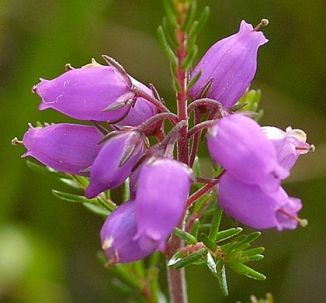
Common Name: Biting Stonecrop Scientific Name: Sedum acre Irish Name: Grafán na gcloch

Common Name: Blackthorn Scientific Name: Prunus Spinosa Irish Name: Draighean

Common Name: Bloody Crane's-bill Scientific Name: Geranium sanguineum Irish Name: Crobh dearg

Common Name: Bluebell Scientific Name: Hyacinthoides non-scripta Irish Name: Coinnle corra
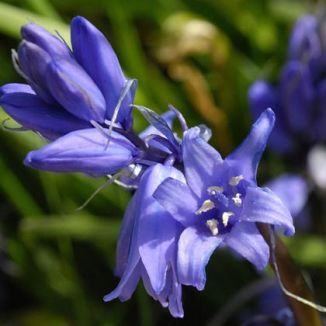
Common Name: Blue-eyed Grass Scientific Name: Sisyrinchium bermudiana Irish Name: Feilistrín gorm
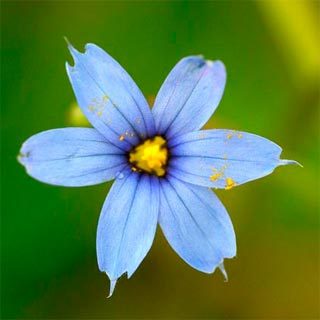
Common Name: Broad-leaved Everlasting-pea Scientific Name: Lathyrus latifolius Irish Name: Peasairín leathanduilleach
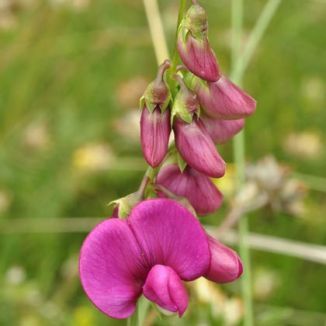
Common Name: Brooklime Scientific Name: Veronica beccabunga Irish Name: Lochall
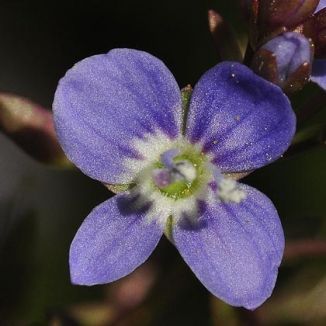
Common Name: Common Bird's-foot-trefoil Scientific Name: Lotus corniculatus Irish Name: Crobh éin
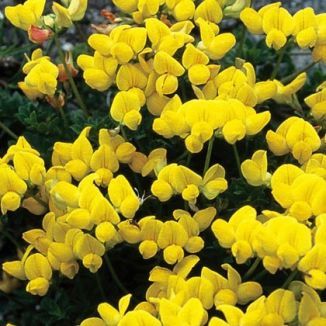
Common Name: Common Poppy Scientific Name: Papaver rhoeas Irish Name: Cailleach dhearg

Common Name: Common Toadflax Scientific Name: Linaria vulgaris Irish Name: Buaflíon

Common Name: Columbine Scientific Name: Aquilegia vulgaris Irish Name: Colaimbín
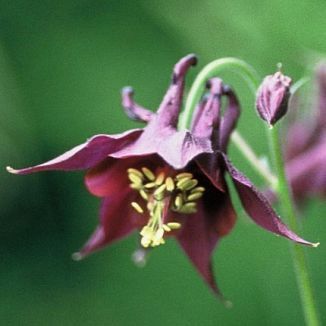
Common Name: Cowslip Scientific Name: Primula veris Irish Name: Bainne bó bleachtáin

Common Name: Dove's-foot Crane's-bill Scientific Name: Geranium molle Irish Name: Crobh bog

Common Name: Druce's Crane's-bill Scientific Name: Geranium x oxonianum Irish Name: Crobh gallda
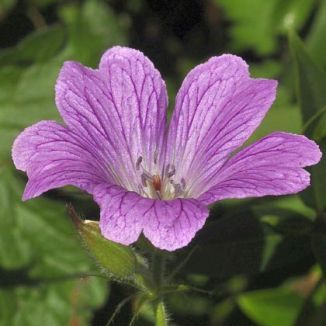
Common Name: Early Dog-violet Scientific Name: Viola reichenbachiana Irish Name: Sailchuach luath

Common Name: Early Marsh-orchid, ssp.coccinea Scientific Name: Dactylorhiza incarnata subsp. coccinea Irish Name: Magairlín dearg

Common Name: Eastern Gladiolus Scientific Name: Gladiolus communis Irish Name: Glaidiólas oirthearach

Common Name: Eyebright Scientific Name: Euphrasia officinalis Irish Name: Glanrosc
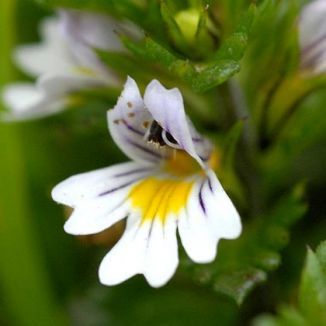
Common Name: Flecked Marsh-orchid Scientific Name: Dactylorhiza incarnata ssp. cruenta Irish Name: Magairlín craorag

Common Name: Flowering Currant Scientific Name: Ribes sanguineum Irish Name: Cuirín
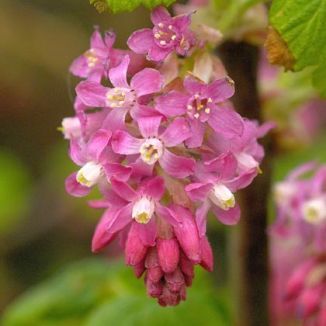
Common Name: Foxglove Scientific Name: Digitalis purpurea Irish Name: Lus mór

Common Name: Fragrant Orchid Scientific Name: Gymnadenia conopsea Irish Name: Lus taghla

Common Name: Goldilocks Buttercup Scientific Name: Ranunculus auricomus Irish Name: Gruaig Mhuire
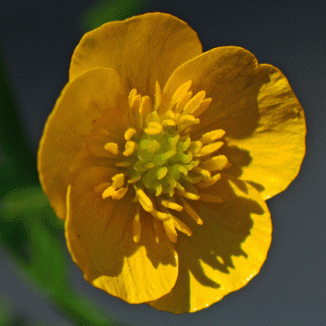
Common Name: Gorse Scientific Name: Ulex europaeus Irish Name: Aiteann gallda
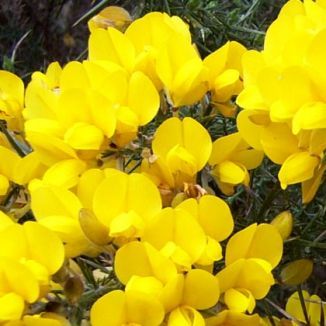
Common Name: Green Alkanet Scientific Name: Pentaglottis sempervirens Irish Name: Boglas spáineach
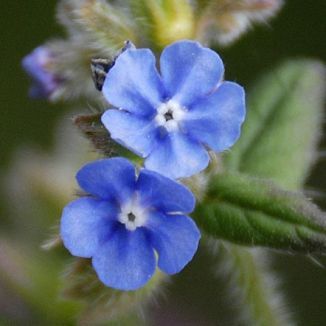
Common Name: Green-winged Orchid Scientific Name: Anacamptis morio Irish Name: Magairlín féitheach
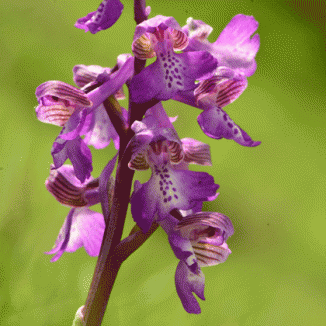
Common Name: Heath Fragrant Orchid Scientific Name: Gymnadenia borealis Irish Name: Lus taghla na móna
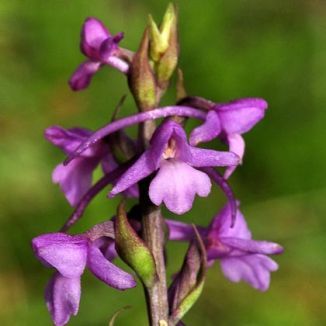
Common Name: Heath Spotted-orchid Scientific Name: Dactylorhiza maculata Irish Name: Na circíní
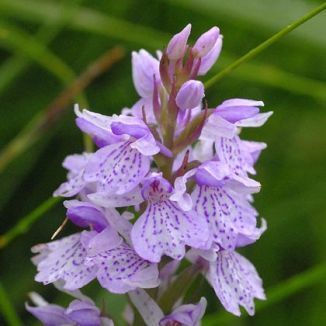
Common Name: Heather Scientific Name: Calluna vulgaris Irish Name: Fraoch mór
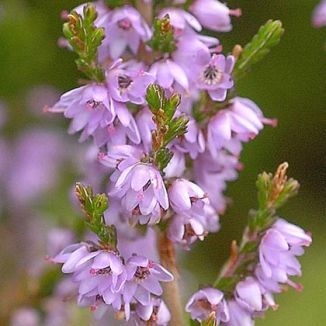
Common Name: Hebridean Spotted-orchid Scientific Name: Dactylorhiza fuchsii ssp. hebridensis Irish Name: Unknown at present
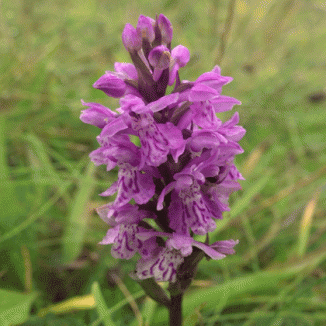
Common Name: Hedgerow Crane's-bill Scientific Name: Geranium pyrenaicum Irish Name: Crobh na bhfál
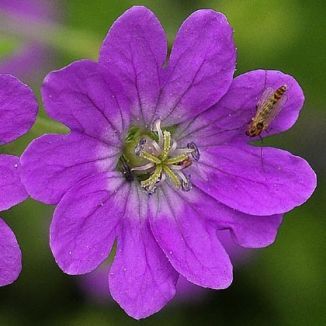
Common Name: Honesty Scientific Name: Lunaria annua Irish Name: Lus na gealaí
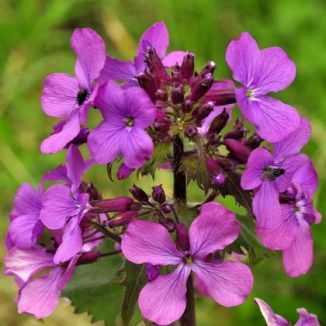
Common Name: Hop Trefoil Scientific Name: Trifolium campestre Irish Name: Seamair dhuimhche
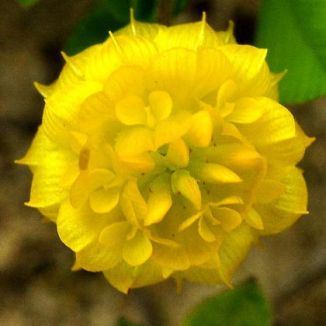
Common Name: Indian Balsam Scientific Name: Impatiens glandulifera Irish Name: Lus na pléisce
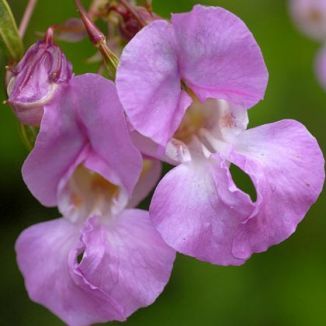
Common Name: Irish Eyebright Scientific Name: Euphrasia salisburgensis Irish Name: Glanrosc gaelach
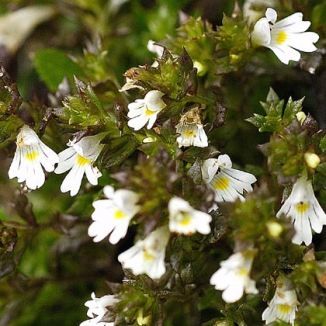
Common Name: Irish Marsh-orchid Scientific Name: Dactylorhiza Kerryensis Irish Name: Magairlin gaelach
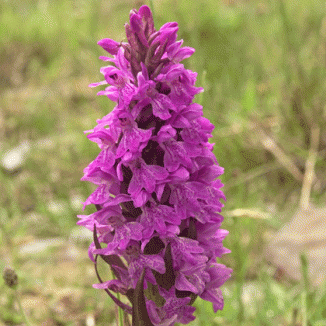
Common Name: Large-flowered Butterwort Scientific Name: Pinguicula grandiflora Irish Name: Leith uisce
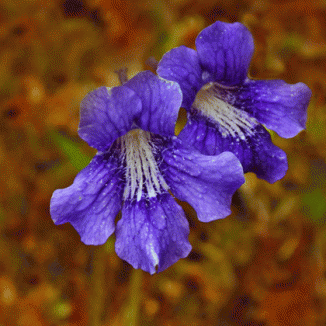
Common Name: Lesser Centaury Scientific Name: Centaurium pulchellum Irish Name: Dréimire beag
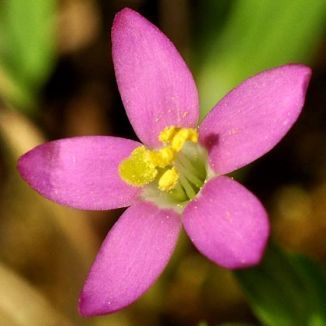
Common Name: Mallow Common Scientific Name: Malva sylvestris Irish Name: Lus na meall Muire
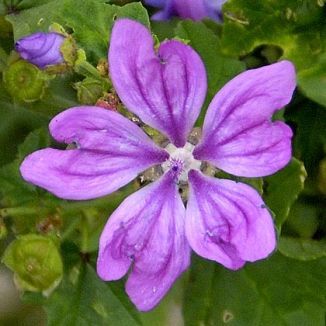
Common Name: Marsh-marigold Scientific Name: Caltha palustris Irish Name: Lus buí Bealtaine
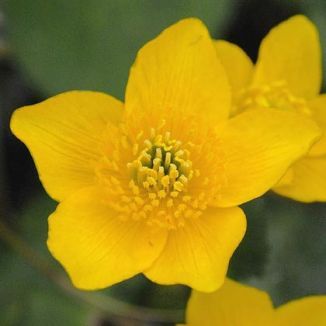
Common Name: Meadow-foam Scientific Name: Limnanthes douglasii Irish Name: Cúr léana

Common Name: Meadow Saffron Scientific Name: Colchicum autumnale Irish Name: Cróch an fhómhair
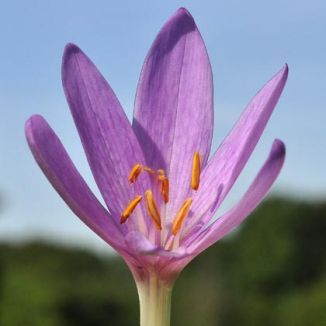
Common Name: Monkeyflower Scientific Name: Erythranthe guttata Irish Name: Buí an bhogaigh
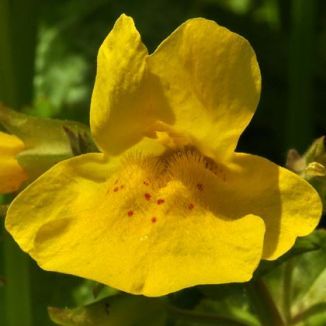
Common Name: Narrow-leaved Helleborine Scientific Name: Cephalanthera longifolia Irish Name: Cuaichín caol
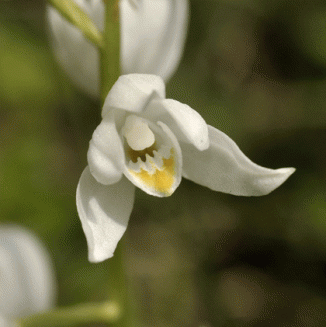
Common Name: Nettle-leaved Bellflower Scientific Name: Campanula trachelium Irish Name: Scornlus
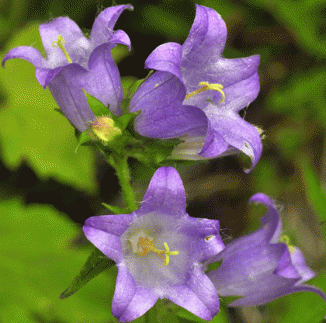
Common Name: Northern marsh-orchid Scientific Name: Dactylorhiza purpurella Irish Name: Magairlín corcra

Common Name: O'Kelly's Spotted-orchid Scientific Name: Dactylorhiza fuchsii var. okellyi Irish Name: Nuacht bhallach Uí Ceallaigh

Common Name: Pencilled Crane's-bill Scientific Name: Geranium versicolor Irish Name: Crobh stríocach

Common Name: Pink-sorrel Scientific Name: Oxalis articulata Irish Name: Seamsóg ghlúineach
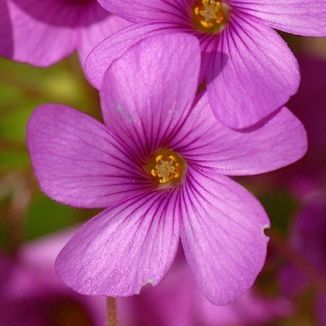
Common Name: Primrose Scientific Name: Primula vulgaris Irish Name: Sabhaircín
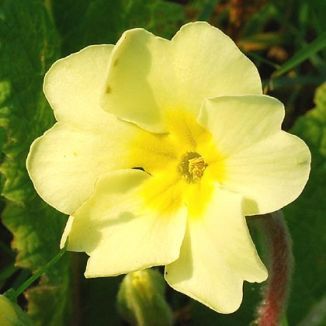
Common Name: Pyramidal Orchid Scientific Name: Anacamptis pyramidalis Irish Name: Magairlín na stuaice

Common Name: Rape Scientific Name: Brassica napus Irish Name: Ráib

Common Name: Red Valerian Scientific Name: Centranthus ruber Irish Name: Slán Iomaire

Common Name: Rhododendron Scientific Name: Rhododendron ponticum Irish Name: Róslabhras
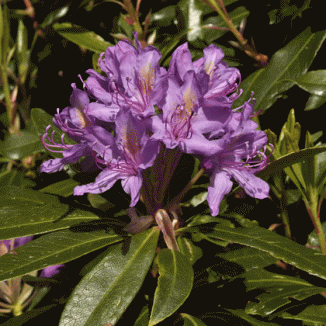
Common Name: Rock Sea-spurrey Scientific Name: Spergularia rupicola Irish Name: Cabróis na gcloch

Common Name: Sand Pansy Scientific Name: Viola tricolor ssp. curtisii Irish Name: Goirmín duimhche
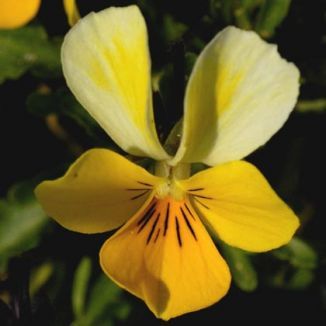
Common Name: Scarlet Pimpernel Scientific Name: Anagallis arvensis Irish Name: Falcaire fiáin

Common Name: Snapdragon Scientific Name: Antirrhinum majus Irish Name: Srubh lao

Common Name: Soapwort Scientific Name: Saponaria officinalis Irish Name: Garbhán creagach
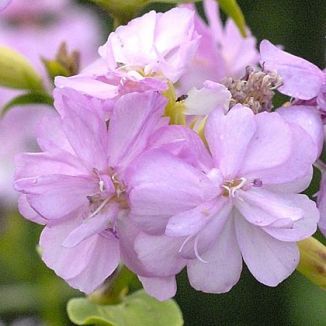
Common Name: Thrift Scientific Name: Armeria maritima Irish Name: Rabhán
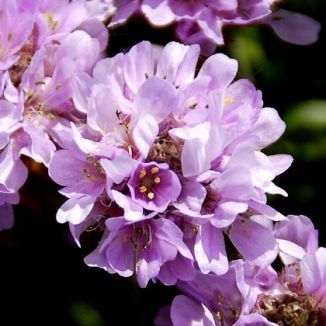
Common Name: Trailing Tormentil Scientific Name: Potentilla anglica Irish Name: Néalfartach shraoilleach
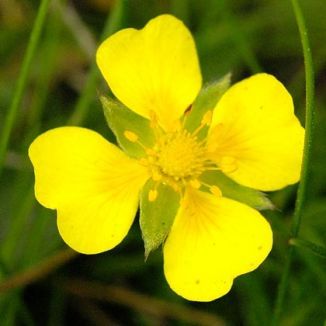
Common Name: Tufted Vetch Scientific Name: Vicia cracca Irish Name: Peasair na luch
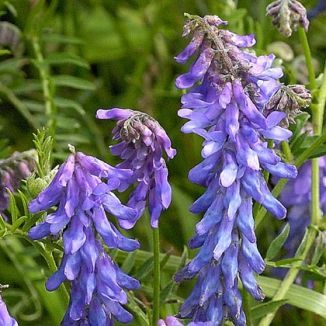
Common Name: Welsh Poppy Scientific Name: Papaver cambricum Irish Name: Poipín Breatnach
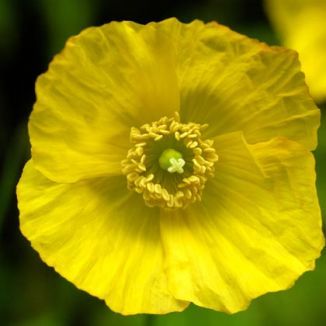
Common Name: White Water-lily Scientific Name: Nymphaea alba Irish Name: Bacán bán
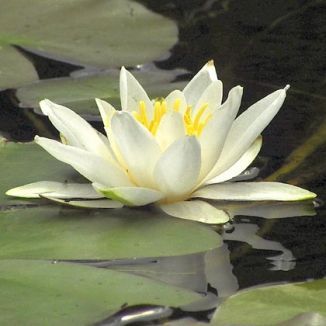
Common Name: Yellow Iris Scientific Name: Iris pseudacorus Irish Name: Feileastram

All images and information in this post regarding Irish wildflowers are courtesy of http://www.wildflowersofireland.net/. Please visit the Wildflowers of Ireland website to learn more about Irish wildflowers.
Sharissa Hall
The Flori Godmother
“May flowers always line your path and sunshine light your day. May song birds serenade you every step along of the way. May a rainbow run beside you in a sky that’s always blue. And may happiness fill your heart each day your whole life through.”
~ Irish Blessing
Post date Mar 17th, 2020 5:54:27pm
1 note
·
View note
Text
ffxivwrite 2021 - #17 Destruct
Continued from #15 Thunderous - ( first | second | third )
Gridania, 1565 6AE
The bell was nearly up by the time Shandrelle returned, and if it was possible she was only more cross. First the air had changed the moment she reached the creek. If had only been able to get down to her picnic spot on time she’d have been able to eat in peace in that perfect spot on a span of flat warm rock right beside the creek bed, where she would lay out her blanket and soak in the quiet solitude punctuated only by the garrulous contributions of birds and frogs as she gradually consumed the crisp sandwich Ezette had made for her that morning, alongside half a jar of spiced apples she’d purloined from the pantry and a mug of wine.
But no! Instead she had to hunch under the large oak tree that oversaw the outcrop, clasping her meal beneath her to guard it from the errant raindrops that rolled through the foliage, battering her nerves in solid wet plops, then a stream.
Then the rain stopped but moments after she left her shelter. As if the gods found all of this funny somehow. Well if they did, she wasn’t laughing! Instead she was stuck smearing water from her forehead and ringing out the edge of her robes, but there was nothing to be done for her underclothes which would assuredly slick to her skin as if she was a drenched rat until she managed to run home.
If she had been in any other mood she’d have abandoned her outdoor lunch and skittered back to somewhere drier the moment the weather turned, but this whole affair had already wasted at least a third of a bell, and she would be damned if she let Ojene ruin the rest of it!
And so, soaked to the bone and shivering in the breeze, clutching a water-slick basket over her arm, Shandrelle scowled at the empty space where she’d left Ojene to begin with.
“You’d better be hiding,” she called out. “Because if you’ve gone and vanished on me after all that, I am going to be very cross.”
“I’m here,” came a voice behind her.
With a yelp, Shandrelle spun round to see Ojene standing there - how was she dry? - as if she’d been there the whole time. “Good gods, don’t scare me like that! Matron, have your feet ever made a sound? Sit down.”
Ojene obliged, and silently, claiming her spot on the now-damp fallen tree. Frown deepening, Shandrelle flipped one side of the basket up and, claiming two of its contents, poured the rest of her wineskin out into her glazed pewter mug, then with an audible huff stuffed it into Ojene’s hands.
“Tell me everything,” Shandrelle proclaimed. “But maybe not everything because I don’t have a surfeit of time. The brief notes, for now, to give me the gist.”
Ojene blinked, staring down at the mug as befuddlement creased between her brows. “Wine?”
“Yes,” Shandrelle snapped, and she gestured sharply. “Drink!”
Grimacing, Ojene set it to the side, balanced in a splintered crook of the fallen tree where old lichens scaled the bark between intermittent shelves of fungi, and she folded her hands together at her knees, hunched forward. Despite the fact that she had escaped the rain, she somehow seemed bedraggled in a way Shandrelle hadn’t noticed before- the leather armor she wore was scuffed in places, caked here and there in dirt and filth, and there was a gauntness to her face that Shandrelle suspected wasn’t just the product of long years past.
“I went to Ala Mhigo,” Ojene said, “from the start. I expect you heard what happened?”
Shandrelle’s arms twitched in surprise. “Yes- of course! Who here hasn’t?”
“Well,” her eyes averted to the ground, “I was there for a good long time. Fighting the Garleans. Helping people. Doing everything I could, no matter what it cost…. Did you ever go there after I left?”
“No,” Shandrelle answered regretfully. “I didn’t. When the city fell at most I wound up in the east, healing those who were. Or the refugees.”
Ojene nodded. “The refugees,” she repeated softly. "That’s the main thing I did- helped them get far enough so you lot could take them to- wherever they needed to go. The Garleans- they are truly terrible, Shandrelle. I’ve never seen anything like it before or since.”
“Not even here?” Shandrelle asked before she could stop herself, and a bitter laugh burbled silently behind her teeth.
“Not even here.” Ojene’s eyes flicked up, meeting Shandrelle’s with a vivid intensity that- Shandrelle noticed in an instant- lacked the lethality it had before, for the dagger was safely sheathed at Ojene’s hip. “It all pales by comparison. And they’ve sought to bring the rest of Eorzea to heel, too.”
A prickling seared down Shandrelle’s spine. “I saw the wall,” she blurted. “The thing they’re building… it might even be done, now. Did you come here across it?”
Again, Ojene nodded. “Though not in the last few moons. Suppose it’s just as well, since my work was getting exponentially harder since they started ramping that damned thing up, but I’m entrenched on this side of it now, for better or for worse.”
“All right,” Shandrelle breathed, “well- what does this have to do with my family?”
“Your family,” Ojene uttered, and a muscle flickered in her jaw. Again, she glanced away, but if Shandrelle didn’t know better she’d have called their silhouette troubled somehow, though she couldn’t pinpoint exactly why she thought it. “It started a couple years ago,” Ojene said. “First it started with the Garleans. I’d been trying my best to be a thorn in their side, true, but it was odd that they sent people for me specifically. Trying to catch me out, or by surprise. There were better people for them to go after, I’d always thought. Or at least, other people. It made little sense that they were always out for me.”
“But then,” Ojene continued, and her eyes jerked back, regarding Shandrelle through their corners, “one time we brought a new crop of refugees past the Wall, and it wasn’t a Garlean who attacked me, but an Eorzean.”
“An Eorzean?” Shandrelle repeated, dumbfounded.
“Yes- a mercenary, and of the sort seeking their fortune around these parts. It’s not the first time the Garleans got Eorzeans to do their bidding of course, beyond the people they’d already enslaved, but something seemed odd about the whole thing. I tried to get that one to talk to no avail, but the second one told me the truth. That some Gridanian paid her to do it. And when I got to the bottom of it, there was only a single name behind it.”
Blithely, Ojene shrugged. “Roiveaux,” she said.
“Roiveaux,” Shandrelle repeated, and a shiver rippled through her shoulders. “You’re sure?”
“Positive. It’s all I was ever able to get, beyond a hunch now and again that the attackers I dealt with that day weren’t Garlean either, but now I’m on the other side of the Wall and I just- want it to stop.”
Biting her lip, Shandrelle skated one hand over her rain-slicked hair. “Damn,” she breathed. “I’m sorry, Ojene- I had no idea this was happening to you.”
“I’m a little relieved to hear it- to be honest.” Quickly, Ojene’s gaze fastened to her folded hands- only to flick back up at Shandrelle shortly after. “After dealing with them for so long- I had no idea what to expect. No notion of who to trust. It’s an agony of a sort.”
With a deep sigh, Shandrelle nodded, and despite herself some small layer of spiteful anger cracked, dissolving its contents into something gentler. “So that’s what that whole- incident was about. Well, I’ll forgive you, Ojene- though I don’t know if I really should- as long as you promise not to go shoving any more blades in my face.”
Ojene flinched, and yet as her fingertips curled into the beds between her opposite fingers, her face twisted in a quiet frown. “You have to understand my position here. Even now as I tell you all of this, I don’t know if you’re someone I can trust. If you’re a person who is willing to go against your own family. Or an empire. You might think you are-” she bullied on, cutting off Shandrelle as she opened her mouth, “but a person’s mettle never shows until it’s tested. You say you don’t want to harm me and- I could believe that. But what happens when you have to choose?”
“Between you- and my family you mean?”
Quietly, Ojene nodded. “It could happen. And if you chose to help me, it probably will. Are you sure you could handle that?”
“I mean…” Shandrelle tossed up her hands, though the weight of the basket swinging on one arm stayed it at her side. “I don’t know! When you put it that way, I couldn’t say. But I’d like to think I could. Unless it turns out you’ve lied to me or some shite and you’ve really become some sort of criminal they’re out to hang.”
Ojene smiled, and darkly, a bitterly humorless note that seized something in Shandrelle’s gut, like a rabbit frozen in the bush. “Not unless you have. Very well. A test, then. Do you come down this path often?”
“Er…” Shandrelle shifted on her heels. “Every day I get the chance, usually. Which isn’t always, but often enough.”
“Then, let’s give it a week. You’ll come back here and meet me at this same bell. You won’t confide in anyone what we spoke of, or even that you’ve seen me at all. And, if you’d be so obliged, you’ll take a peek in whatever ledgers you can to see if there’s mention of me. Wailer records would likely be the best start.”
“Wailers-” Shandrelle gasped. “That’s assuming I can even get to those!”
“Perhaps not. But if you’re to help me with this, it’s largely that sort of work I’ll need you to do. Not with Wailers specifically, but reconnaissance in general. Spying. You know, the lot.” Ojene’s eyes narrowed sharply. “If you can’t figure out how to do that- well. You were always smart. I’m sure you’ll think of something.”
Without preamble, Ojene climbed to her feet, and leaving the mug of wine untouched in its dead wood cradle, she turned into the thicket of foliage. “In a week!” she called over her shoulder, then with barely more than a rustle of leaves vanished from view.
Alone Shandrelle stood by the vetch, eyes rapidly fluttering as her mind struggled round the pieces.
“Ojene!” she yelled into nothing. “That’s not very nice of you, Ojene!”
Only silence responded.
#ffxivwrite2021#my writing#ojene suinuet#shandrelle roiveaux#you know#I've joked before about Ojene being a female byronic hero (which you don't see a lot of)#but until writing this I never really thought it was TRUE#damnit Ojene sometimes you are such a DICK
4 notes
·
View notes
Text
The secret to curbing farm emissions is buried in the Stone Age
Reduced tilling, cover crops, and more trees can pull more carbon from the air and into the ground. (Patrick Leger/)
Along a stretch of rural highway in the coastal plains of North Carolina sits an unusual forest. The viridian-green branches of loblolly pines rise 60 feet above a carpet of soft, tufted grasses, rippling slightly in the breeze. The trees are widely spaced, 20 to 30 feet apart, with their lower limbs removed, creating an airy, cathedral-like canopy speckled with sunlight filtering through the needles.
The woodland has a strangely serene, primeval feel. A sudden wave of grunting reveals large black shapes moving in the distance. A pickup approaches, further breaking the reverie, and out hops a slender middle-aged man in a ball cap.
“Buron Lanier,” he says, extending a hand. “Sorry I’m late. I was just finishing up with a calf.”
The shapes, Lanier’s Red Angus cattle, amble over. This forest, 100 acres of his 400-acre Piney Woods Farm, is their grazing ground—a modern incarnation of an ancient technique called silvopasture, an integration of forest and fauna.
To Lanier—a third-generation grower whose ancestors raised tobacco where his pines now stand—the unusual scheme, which he’s cultivated over the past 30-plus years, is common sense. The trees boost his bottom line through periodic timber sales, and cattle fatten up 20 days quicker when not forced to munch on sudangrass in 90-degree heat.
He waxes eloquently about the wildlife habitat, erosion control, and sense of calm this land provides. “I love the pristineness, the peacefulness of the trees,” he says in a soothing drawl as he drives through his ranch as if on a Jurassic Park agriculture safari. He points out the calf he midwifed earlier, wet and wobbly in a sweetly scented glade. “Who wouldn’t want to give birth in a nice shady bed of grass?”
Minus the pickup truck and some electric fencing, it’s a scene one might have encountered in the Neolithic period, when humans first domesticated cows from the aurochs roaming the Fertile Crescent. The practice was among the earliest agricultural endeavors, but the bare fields and feedlots of modern farms and ranches have largely swept it away.
Environmental scientists, though, see the reemergence of silvopasture as a means to slow down climate change. Livestock produce two-thirds of all agricultural emissions, and methane from burping cows is the largest slice of that. Lanier is skeptical that global warming is real, but his pines, in siphoning CO2 from sky to earth, are nonetheless helping cancel out his bovine contribution to planetary disaster.
Farmers and ranchers across the country are turning back the agricultural clock in order to convert the land they steward into ammunition in the climate fight. In total, cultivation sends about 8 billion tons of carbon into the air each year. That’s nearly one-quarter of emissions—roughly the same as heat and electricity production combined, and far more than transportation.
Anecdotally, the United States Department of Agriculture sees a tiny but growing number of silvopasture farms, while other methods that suck greenhouse gases from the air—collectively known as carbon farming—are experiencing greater resurgences. The once-ubiquitous practice of plowing, which chucks soil-bound carbon into the atmosphere as it churns the ground, has disappeared from 21 percent of acreage. Cover crops, typically sown in the offseason and left in fields to decompose, are also rising in popularity.
Such practices have been on the upswing since the 1990s, even among the large-scale operations that supply the likes of General Mills and McDonald’s. But for the cash-strapped midsize farmers who represent the bulk of American growers, adoption can be a challenge. While these methods can slash costs (less tillage means less tractor fuel, and richer soil requires fewer fertilizers), they can also risk yields. Agronomists are working on a road map to help folks invest in changes—and to elevate climate-conscious practices to a place where we can feed the world’s 7.5 billion people.
Finding those answers is vital for the planet. According to analysis from Rattan Lal, director of Ohio State University’s Carbon Management and Sequestration Center, farm-based emissions trapping could get us most, if not all, of the way to the goals of the Paris Agreement. “This is if somebody at the United Nations turns a switch and says, ‘Thou shalt do everything perfectly,’” he says. “Even if we can achieve half, or a third, of what’s possible under optimal conditions, we will have made a difference.”
Combining grazing grounds with cultivated forests can help cancel out the methane from cow burps. (Patrick Leger/)
At Cherry Farm, a 2,200-acre facility affiliated with the University of North Carolina, not far from Lanier’s ranch, biologist Tomás Moreno weaves down narrow aisles of organically raised cornstalks and stops at an airtight metal chamber resting atop the soil. Slipping a syringe through a rubber gasket in the lid, he draws air that’s percolated up from the ground. This sample is bound for a USDA lab that will analyze its greenhouse-gas content.
As part of a long-term project kicked off in 2018, Moreno and his colleagues repeat this process throughout the year on plots representing more than a dozen cultivation regimes. “We still have more questions than answers,” Moreno says, as he shoos a giant black-and-yellow spider. Many of the methods they track—including varying levels of tillage, cover crops, and livestock integration—are modern-day analogs of Neolithic agricultural life. What they find will help determine how best to replenish the carbon the ground has lost.
Land naturally wants to hang on to carbon. Vegetation (the more, the better) inhales the element from the sky. Roots excrete some of it into the soil, feeding underground microbes, which poop and die and aggregate with decomposing flora and fauna to form humus, a dark, crumbly substance that is 50 to 60 percent carbon. A sponge for nutrients and moisture, the material can remain stable in the soil for millennia.
Early farming scarcely disturbed this cycle. Chickens tamed by Southeast Asian hunter-gatherers some 10,000 years ago foraged in forests rich with early crops like bananas and mangoes. Similarly, the Amazon was once a loosely kept garden of more than a hundred species, including cacao and pineapple. Parts of the rainforest still hold terra preta—“dark soil” in Portuguese—a nutrient-filled groundcover.
As societies grew and needed to scale up agricultural production, carbon-rich landscapes became carbon-impoverished. Farmers set fire to larger and larger tracts, the easiest path to clear the ground—but also a huge polluter, and a gateway to the second climate culprit, the plow.
Some 7,000 years ago, Mesopotamians developed the ard, a wooden hoe-like implement pulled behind draft animals to stir the earth in barley and chickpea fields. Sometime around year zero, it evolved into an iron tool. When John Deere introduced its ubiquitous tractors in 1918, the practice entered an exponential growth curve.
The glinting steel of a plow blade holds obvious allure. Digging uproots weeds that hog nutrients, water, and sun, and it loosens the ground so tender seedlings can easily grow. But exposing soil lets carbon compounds oxidize into the atmosphere, where they can no longer do what they’re meant to: feed plants. The plow cuts like a double-edged sword—increasing yields but cementing reliance on fertilizer.
Thanks to these methods, we’ve released up to 600 gigatons of carbon—about 30 percent of what humanity’s flung into the atmosphere—since we began farming. Soil scientist Lal estimates that it’s possible to recapture 4 to 5 gigatons per year through better land management.
Undisturbed topsoil holds onto more carbon and nutrients than ground churned up by heavy plowing. (Patrick Leger/)
Today, ditching tillage seems unfathomable, but ecosystems have long managed to produce robust growth without it. In his 1943 book, Plowman’s Folly, American agronomist Edward Faulkner posited that we’d be better off working the land in a way that mimics nature.
Faulkner’s wisdom languished in obscurity for decades, but soil depletion has slowly forced cultivators to embrace the idea. “No-till” tractor attachments emerged in the 1980s and ’90s. These cut a slit through crop residue without disturbing the soil, leaving a carbon-rich mulch atop fertile dirt.
Parking the plow isn’t a blanket solution, though. Small-seeded vegetables like lettuce struggle to take root, while large-seeded commodities like corn and soy (the two most planted crops in the US) readily adapt. A farm’s yields might dip in the first few years after tilling stops, but adopters who master the art find they produce just as much—with significant savings on labor and fuel. Devotees tout the return of carbon to the ground as a panacea: Healthier soil begets healthier crops that require less fertilizer.
Cover crops further bolster the carbon-farming lifestyle. Sown to enrich the soil rather than for harvest, plants like clovers, vetch, and various inedible radishes and ryegrasses are among the most common. Started after harvest in fall, before planting in spring, or as groundcover during the main growing season, they pull in carbon and add nutrients to the earth after they die. The cost adds overhead to a stead’s delicate fiscal existence, but according to a USDA survey of farmers, improved yields and reduced fertilizer spending help the practice pay for itself in an average of three years.
Those who combine no-till and cover crops capture about a half-ton of carbon per acre annually, according to analysis from Project Drawdown, an international collaboration of academics and advocates that assesses the potential impact of mitigation strategies.
Hardcore carbon farmers reach even further into the past and integrate trees—like Lanier and his silvopasture. The approach sponges up nearly 2 tons of atmospheric CO2 per acre per year. Other forms of mixing crops with woods (termed “agroforestry”) grab even more, making it the most potentially impactful shift, according to Drawdown’s data. The method can also be lucrative. Shade-grown chocolate fetches a premium for Brazilian farmers, and the hogs that become Spain’s famed jamón Ibérico fatten on oak-dropped acorns. Yet adoption faces a huge hurdle: It can take decades to recoup the cost of planting and nurturing a canopy.
At Cherry Farm, lead USDA researcher Alan Franzluebbers has begun to chew on the early data from his team’s gas sampling. As expected, the systems with the least soil disturbance and the most plant life hold more carbon. But smaller insights could lead to new tweaks. For instance, pine and walnut trees are better sinks than cypress and ash (good news for Lanier). Ultimately, Franzluebbers will convert those findings into climate-conscious recommendations for the sandy plains of eastern North Carolina; similar experiments are running parallel in other regions. “We have to return carbon to the soil,” he says. “We need to move much quicker than we are.” Intrepid farmers aren’t waiting around.
Sowing plants like ryegrasses and radishes between cash crops helps the ground hold onto more carbon. (Patrick Leger/)
On a clear, cold day in early March 2019, Justin Jordan, a fifth-generation grower in Lacona, Iowa, pores over old maps spread across his dining-room table. One creased, yellowing chart shows a soil-conservation plan his grandfather created with the USDA in the 1950s, including terraces for controlling erosion and areas designated for tree planting. The agency was working to reverse critical topsoil loss from decades of mass-scale plowing.
His grandfather implemented portions of the scheme. But new synthetic fertilizers, which could boost yields by 50 percent, made the situation less dire, so he continued tilling their corn and soybean fields each year. As did Jordan’s dad, and most other farmers. Over the past 150 years, cultivation has chewed up about half of Earth’s topsoil.
Jordan, an impeccably polite, soft-spoken man in his late 30s, stopped plowing and began planting cover crops when he took over in the early 2000s. “I was eager to do things in a different way,” he says. “It just seemed like every year the topsoil was getting thinner.” Jordan tends 410 acres—larger than most farms hawking vegetables at Saturday markets, but tiny compared with 10,000-acre corporate operations.
Aerial photos show the contrast between his land and that of other farmers, most of whom continue heavy tilling. His soil is dark and rich, but from the air, his fields appear lighter, covered in accumulated mulch. Strips of perennial hay grass (for his cattle) and native prairie species like milkweed meander across the slopes—year-round flora that pump carbon into the soil. Neighboring barren fields steadily release it.
Once Jordan brings in his corn in October, he sows a cover of rye among the drying stalks that stays green through the following spring, when he cuts it down and seeds next year’s crop in the mulch. He sprinkles his soybean fields before the September harvest with a cocktail of rye, radishes, and oats, creating a mini forest beneath the knee-high cash crop. With all these changes, his yields have remained roughly the same as his neighbors’.
Soon, folks like Jordan might gain a financial edge. The Terraton Initiative, the nation’s first carbon market dedicated to agriculture, launched in June 2019 out of the farm-tech startup Indigo Ag. Companies that want to offset their emissions purchase credits; Terraton then pays growers $15 per ton for the carbon their land captures. Within six months, farmers tending a total of 10 million acres worldwide—encompassing plenty of the massive steads that are the face of modern agriculture—expressed interest in signing up.
More cash would be nice, but climate change is the motivating factor for Jordan—out of global concern, and to keep his harvest from washing away. “When I was a kid, getting 2 or 3 inches of rain in one storm hardly ever happened,” he says. “Now we’re regularly seeing 6 or 7.”
Increased carbon leads to erosion-resistant clumps called aggregates, plus a layer of plant residue that softens downpours. “I can take those big rains,” Jordan says, “and in a dry spell, having that blanket on the soil keeps me from losing moisture.” For every percentage-point increase in organic matter (the carbon-rich product of decomposition), an acre of topsoil can hold an additional 20,000 gallons of water, according to USDA data.
As Jordan gives me a Jeep tour of his farm, passing a frozen pond and waist-high swaths of buff-colored prairie grasses, he ponders his options for grabbing more carbon. He’d like to find a way to add trees, but it’s a long-term investment with little short-term upside. Crop prices have plummeted in recent years, so owners have scant appetite for risk, he says. “I’m in survival mode.”
Still, he’s proud to be part of a growing minority pushing carbon-farming practices as a weapon in the climate fight. In early 2019, he attended a Faith, Farmers, and Climate Action meeting at a church in Des Moines. The organizers—a nonprofit that promotes a religious response to global warming—have had early success in rallying a handful of growers in conservative Iowa communities to stop tilling and to plant cover crops.
However they’re recruited, carbon farmers need to become an army. Growers like Jordan represent the bulk of American agriculture (the average stead measures 443 acres), so the practice reaching its potential requires that both midsize outfits and larger-scale cultivators get on board. Taken together, Earth’s 12 billion acres of farmland could absorb all the CO2 that has built up in the atmosphere. Currently, the average concentration of carbon in soil is about 1 percent; bumping it to 3—ideal growing conditions—on 30 percent of fields would get us there.
Jordan doesn’t care what incentive it takes—cash, a desire like Lanier’s to be a “good steward” of the land, or the satisfaction of rebuilding topsoil—to reach the unconverted. Realizing that our collective fate might hinge on this revolution, he’s frustrated with the pace of adoption. “Most farmers will do it only if they see a financial gain.” But, if nothing else, he’s gained something priceless: “I feel like I’m farming with a clear conscience.”
This story appears in the Spring 2020, Origins issue of Popular Science.
0 notes